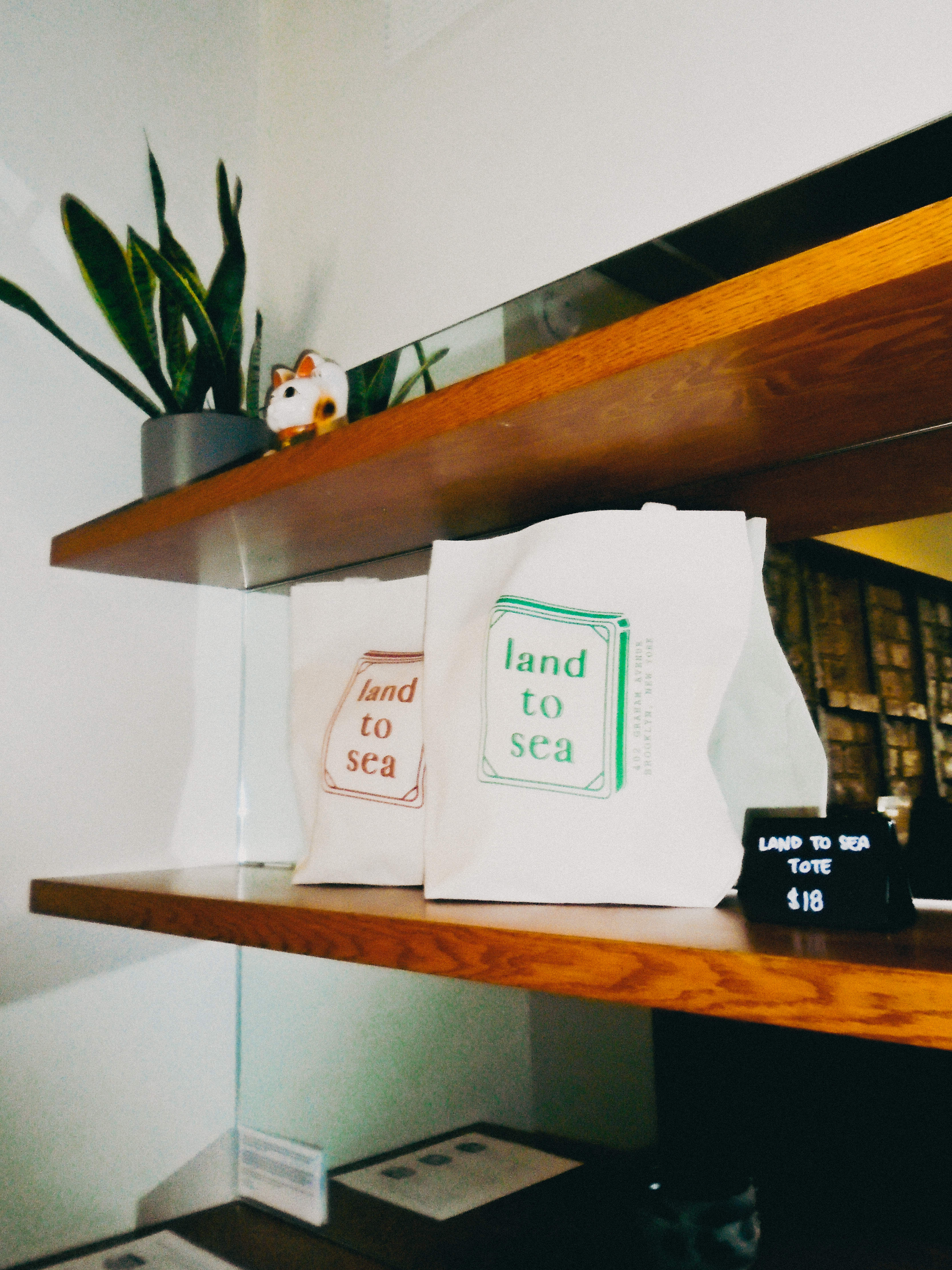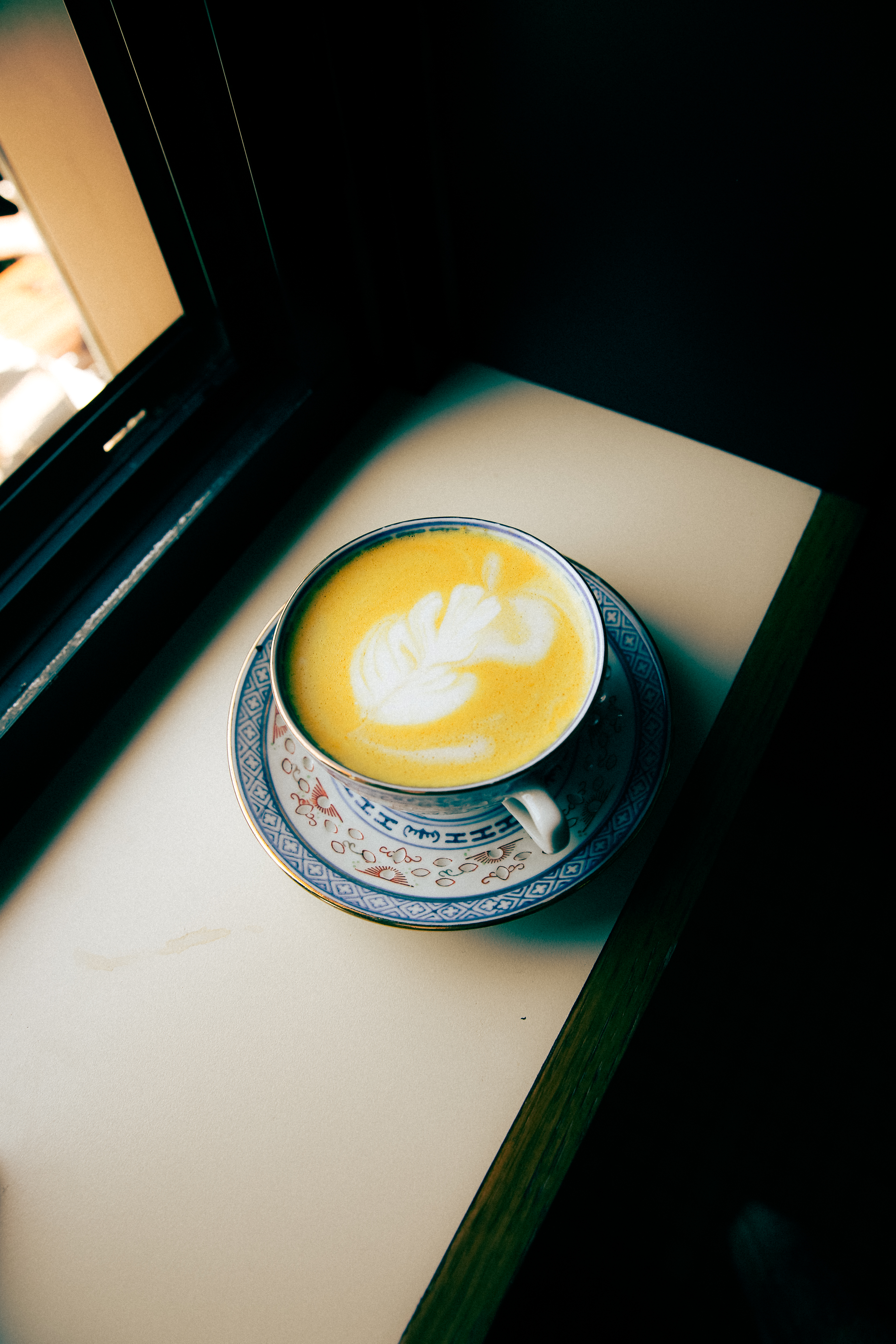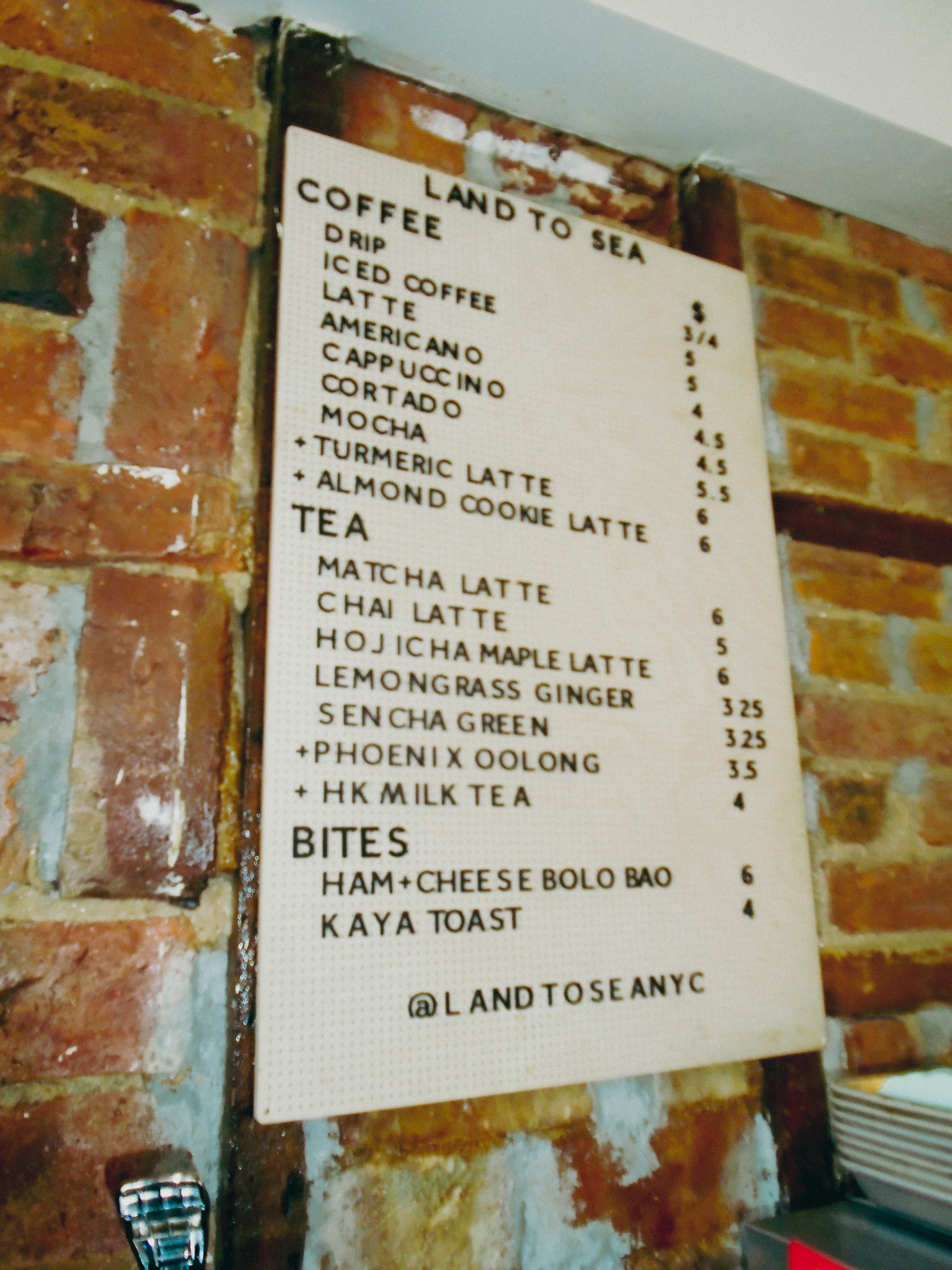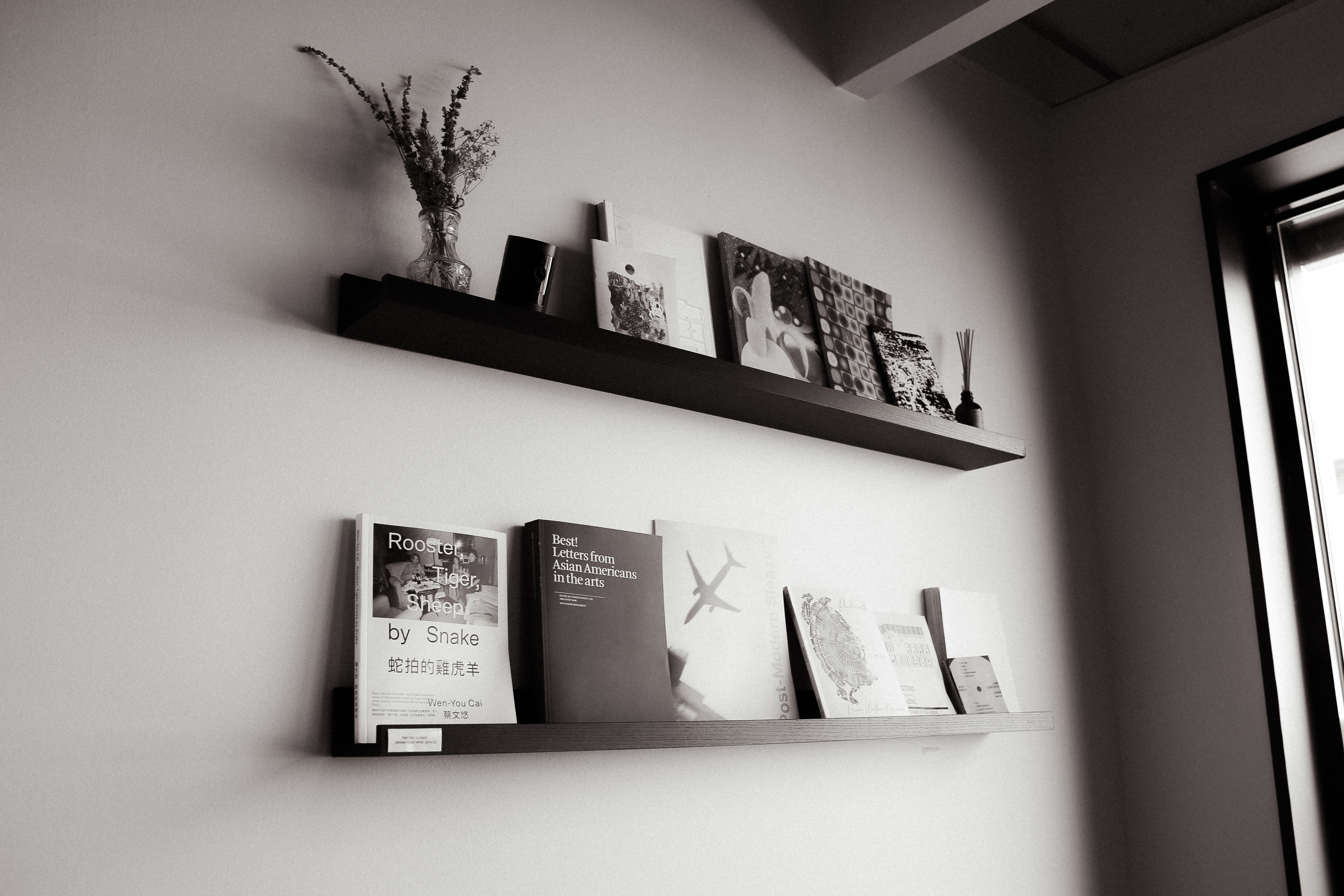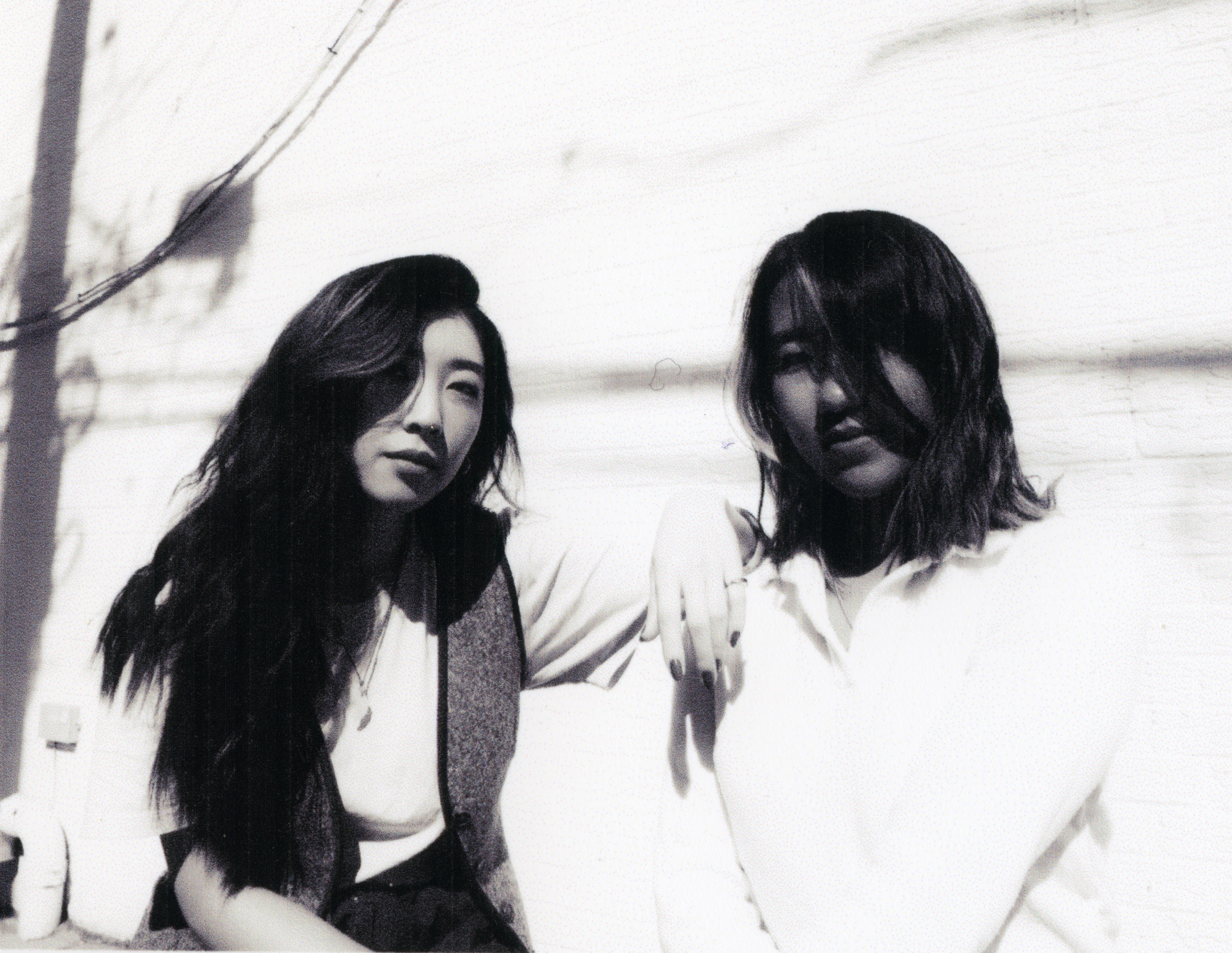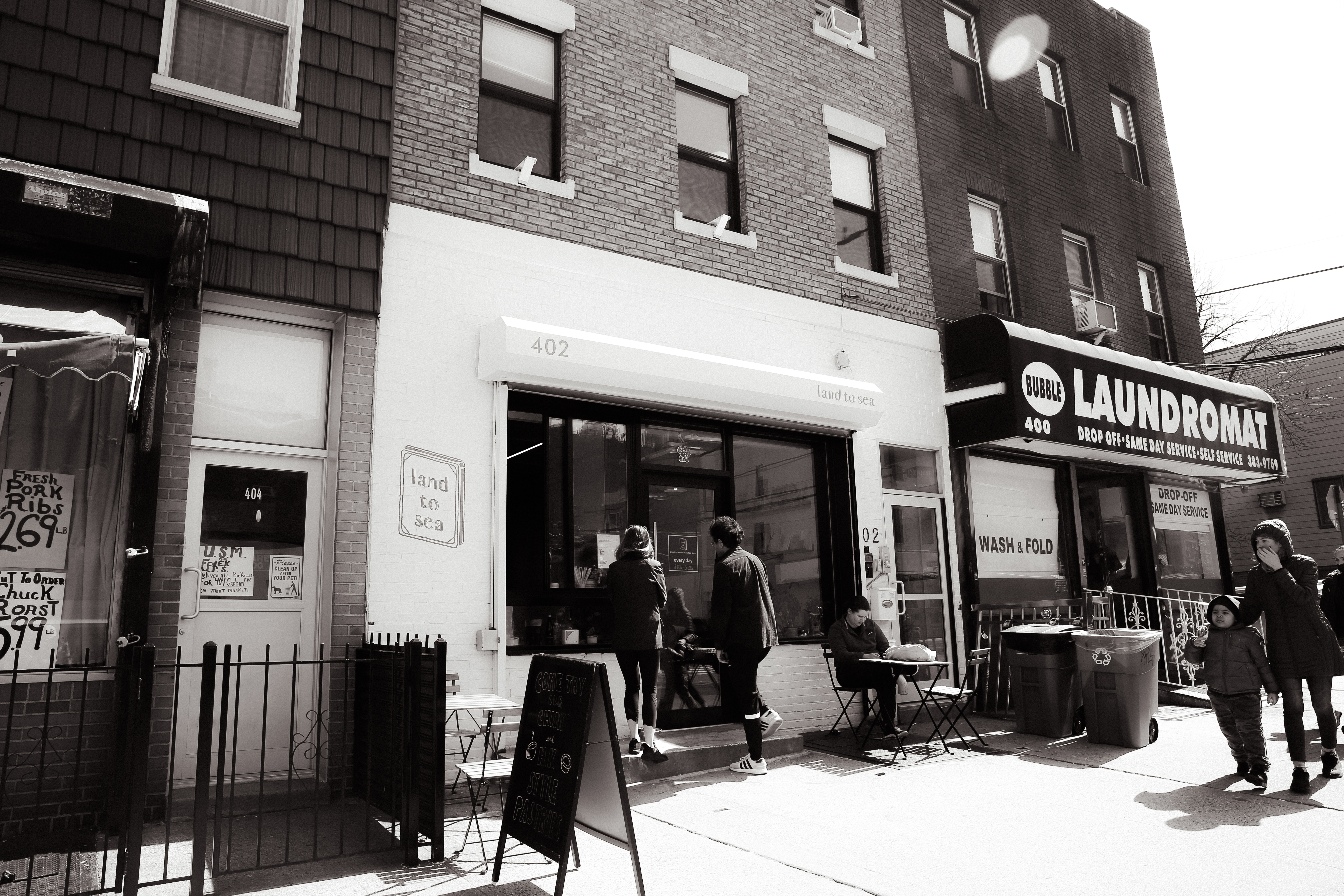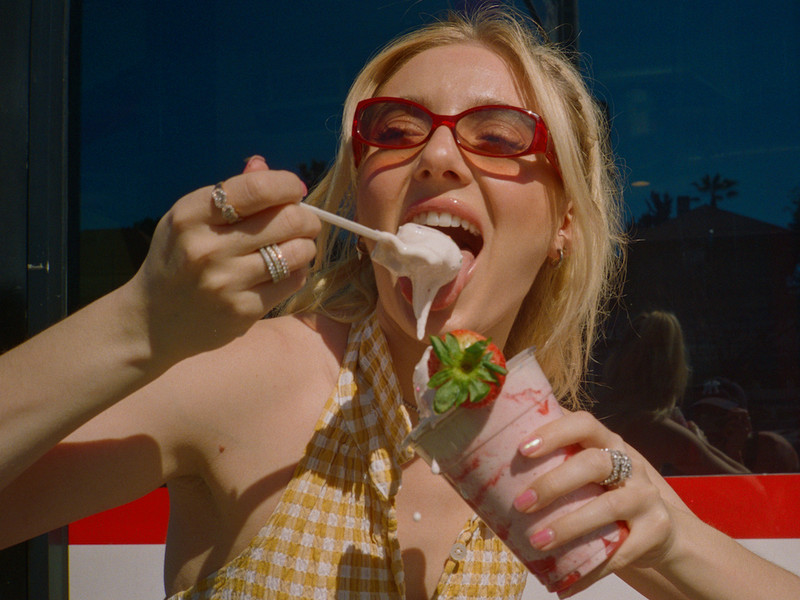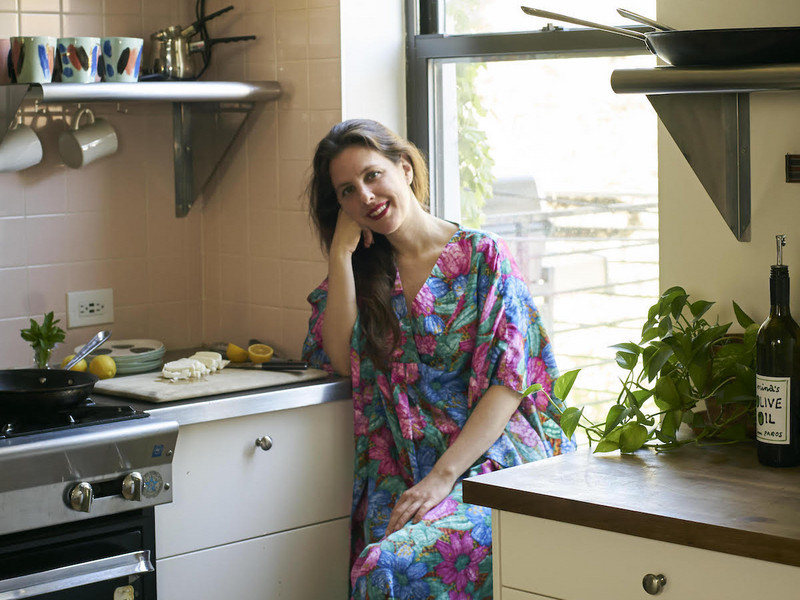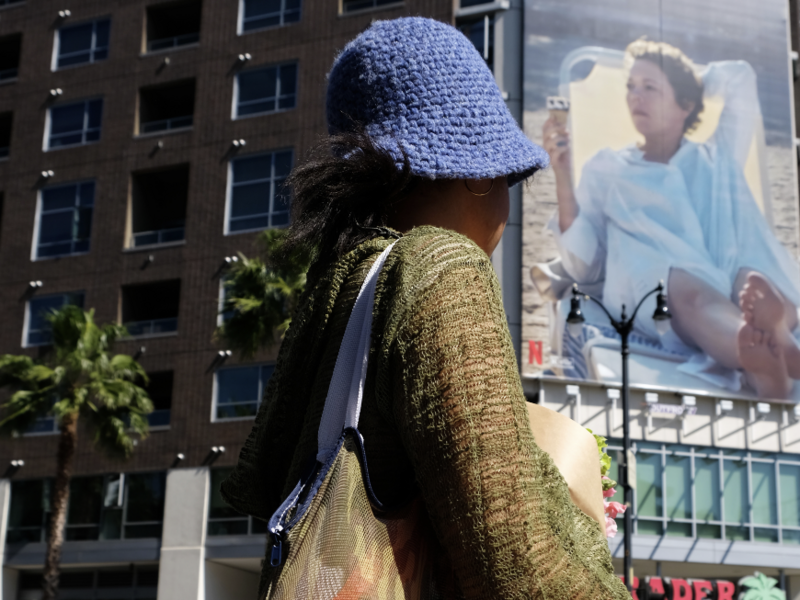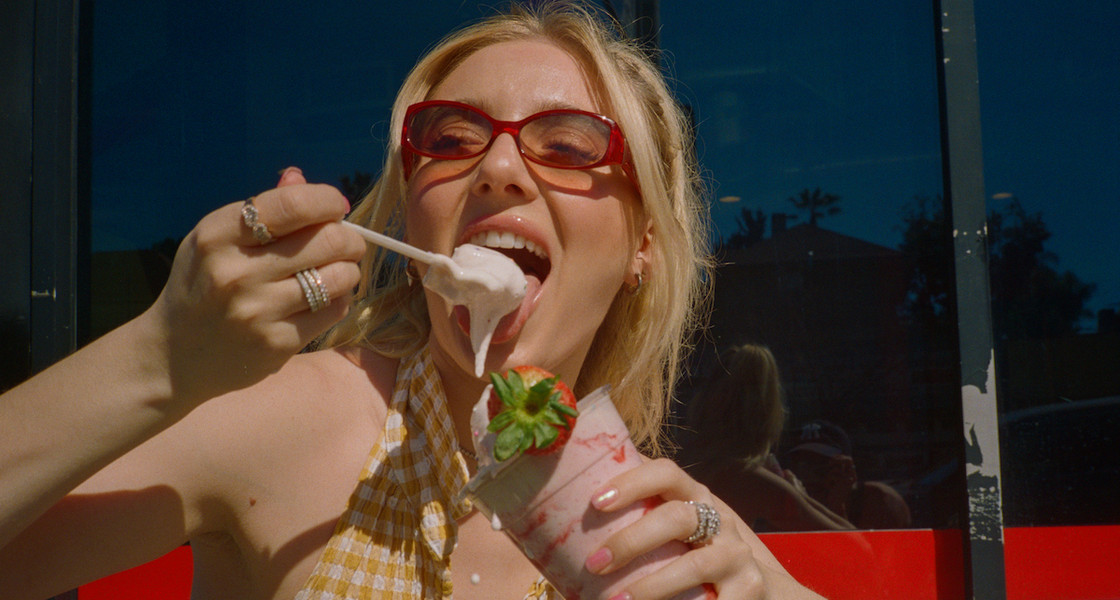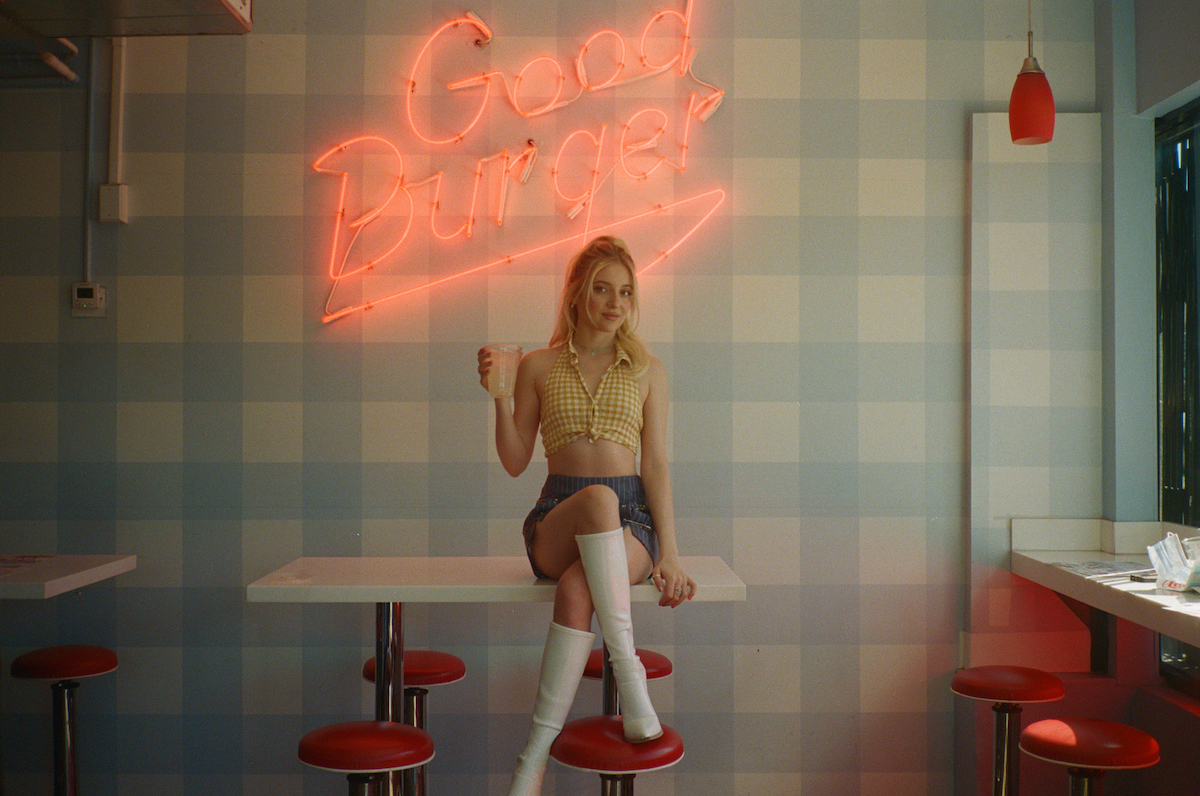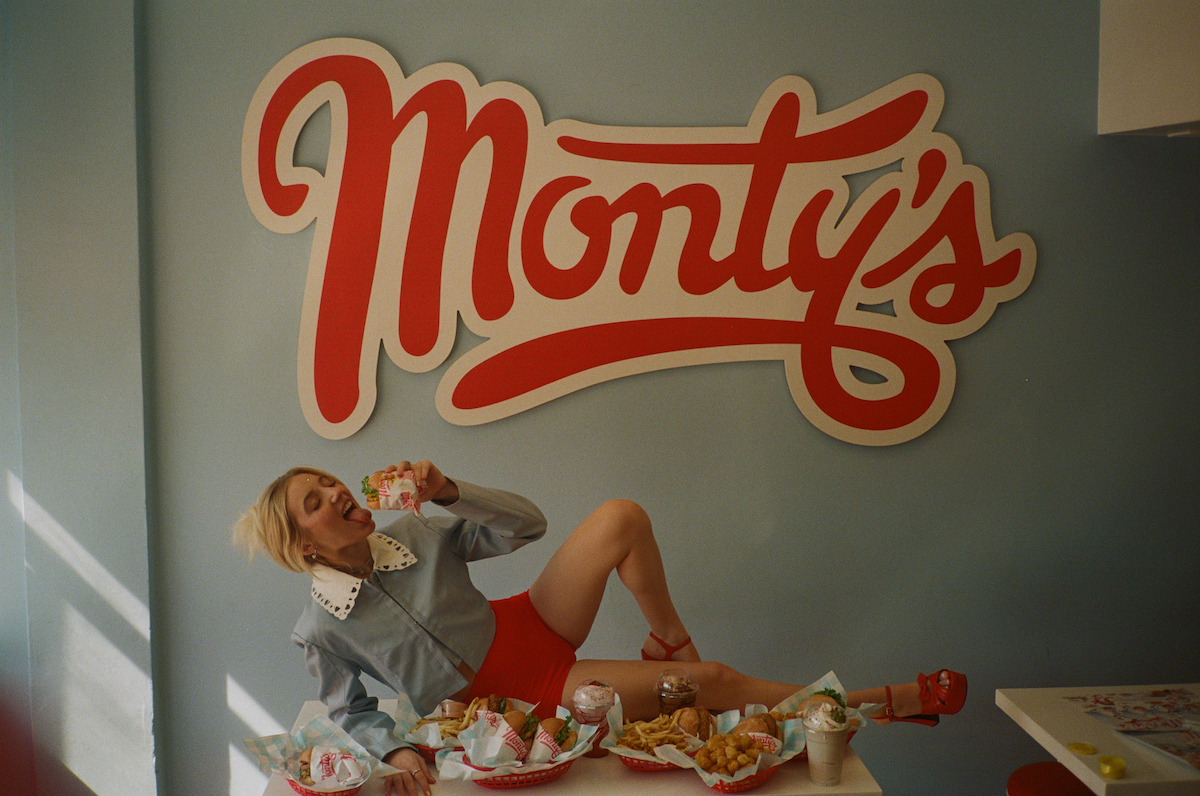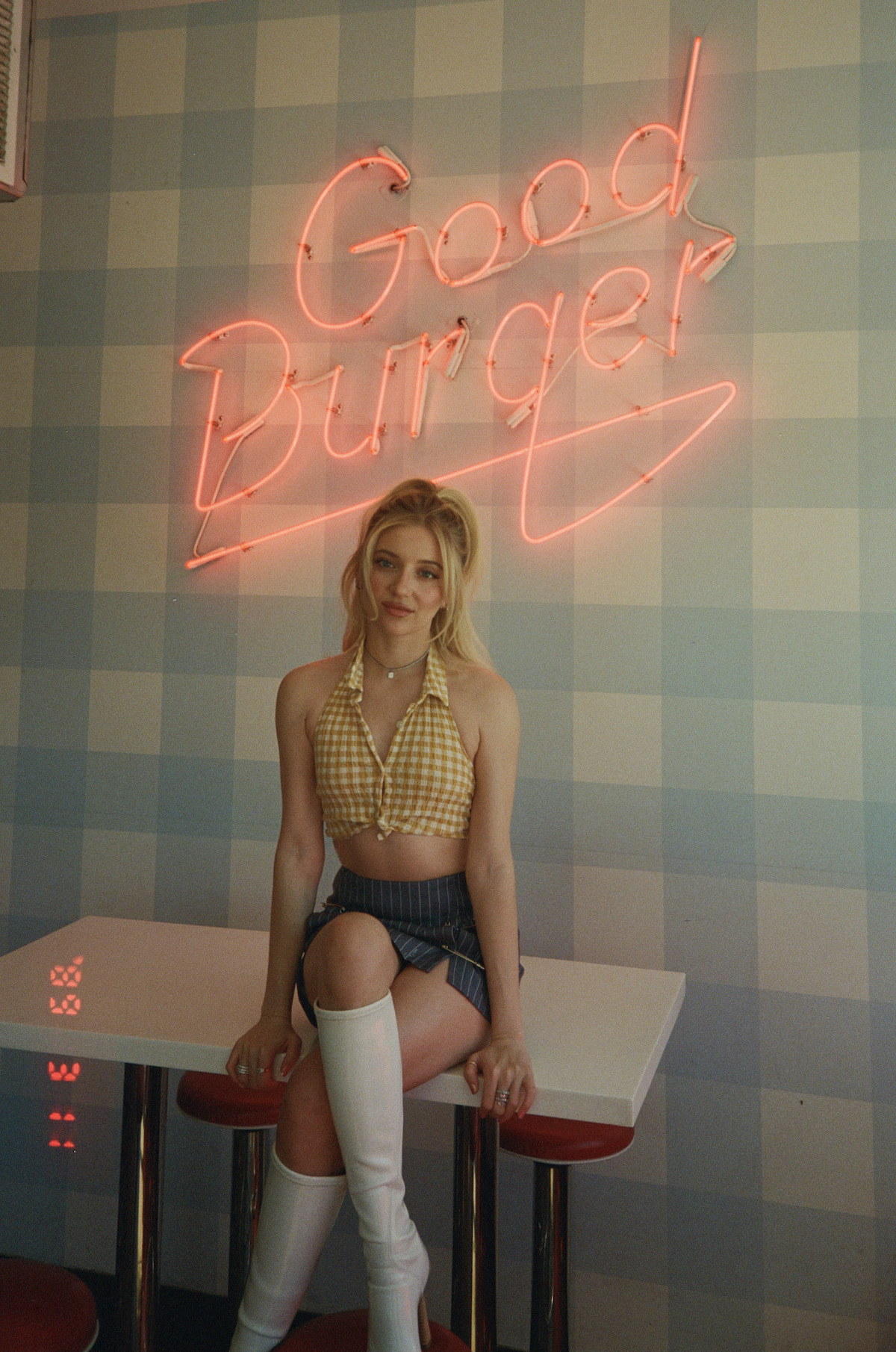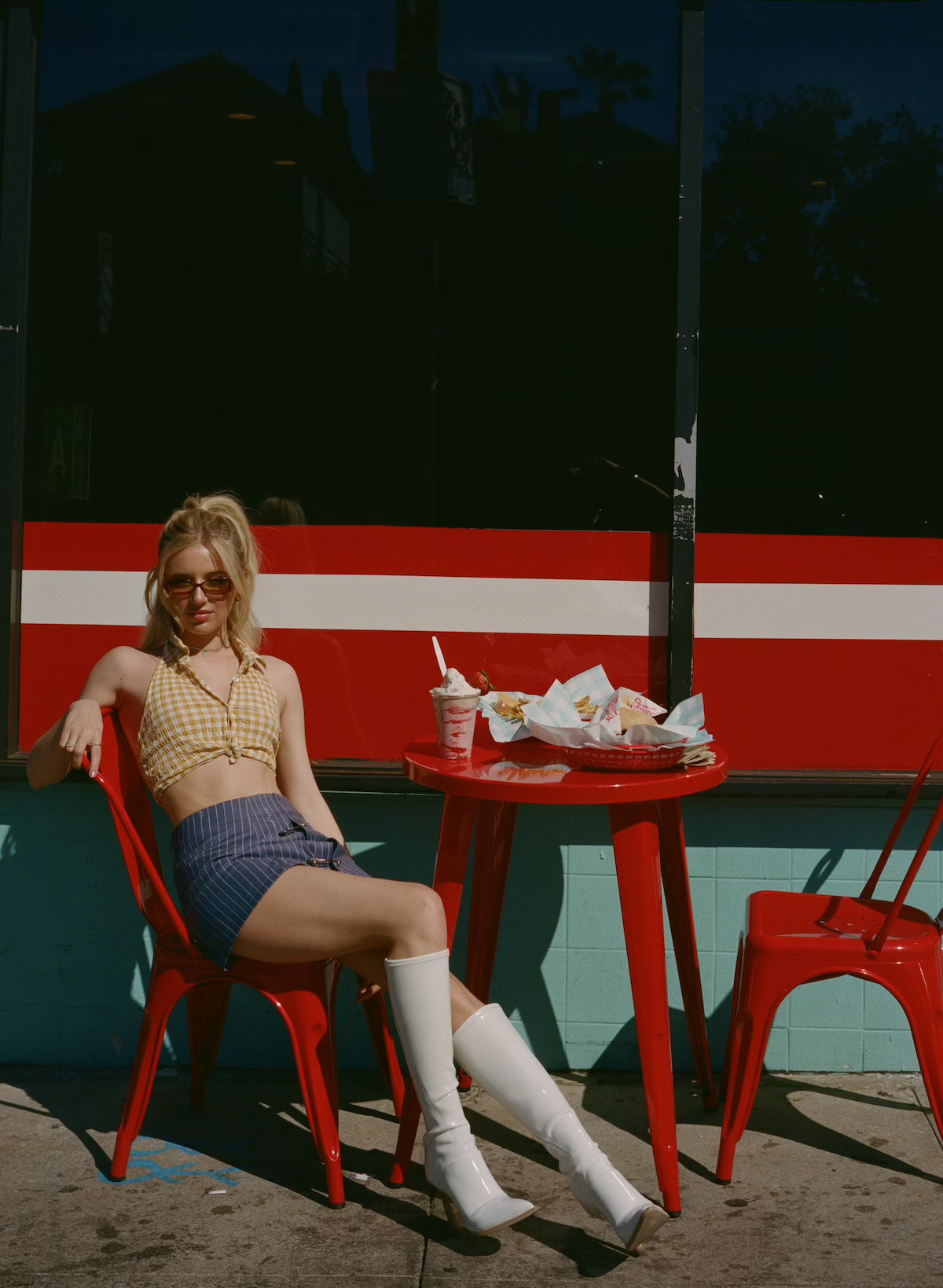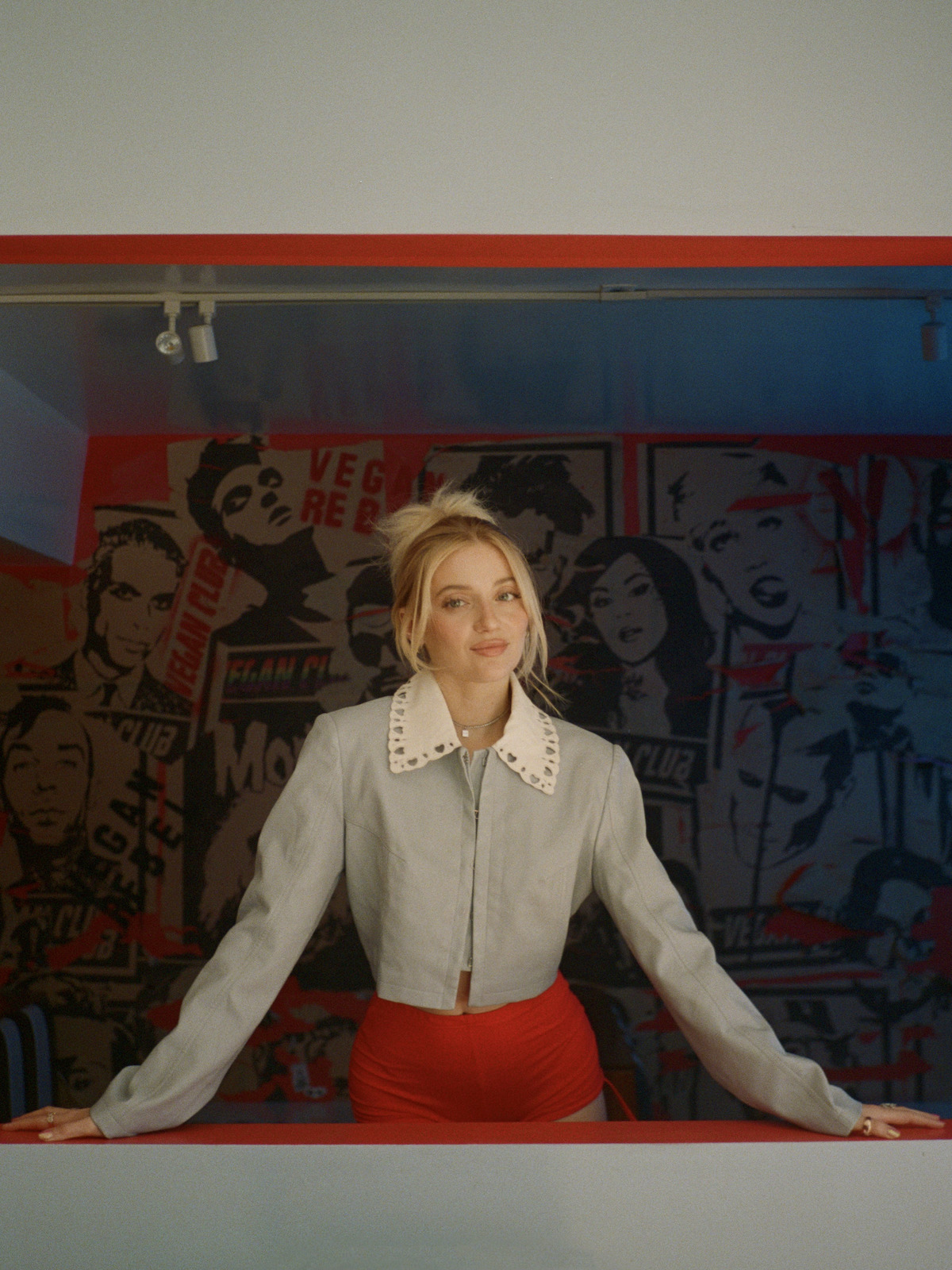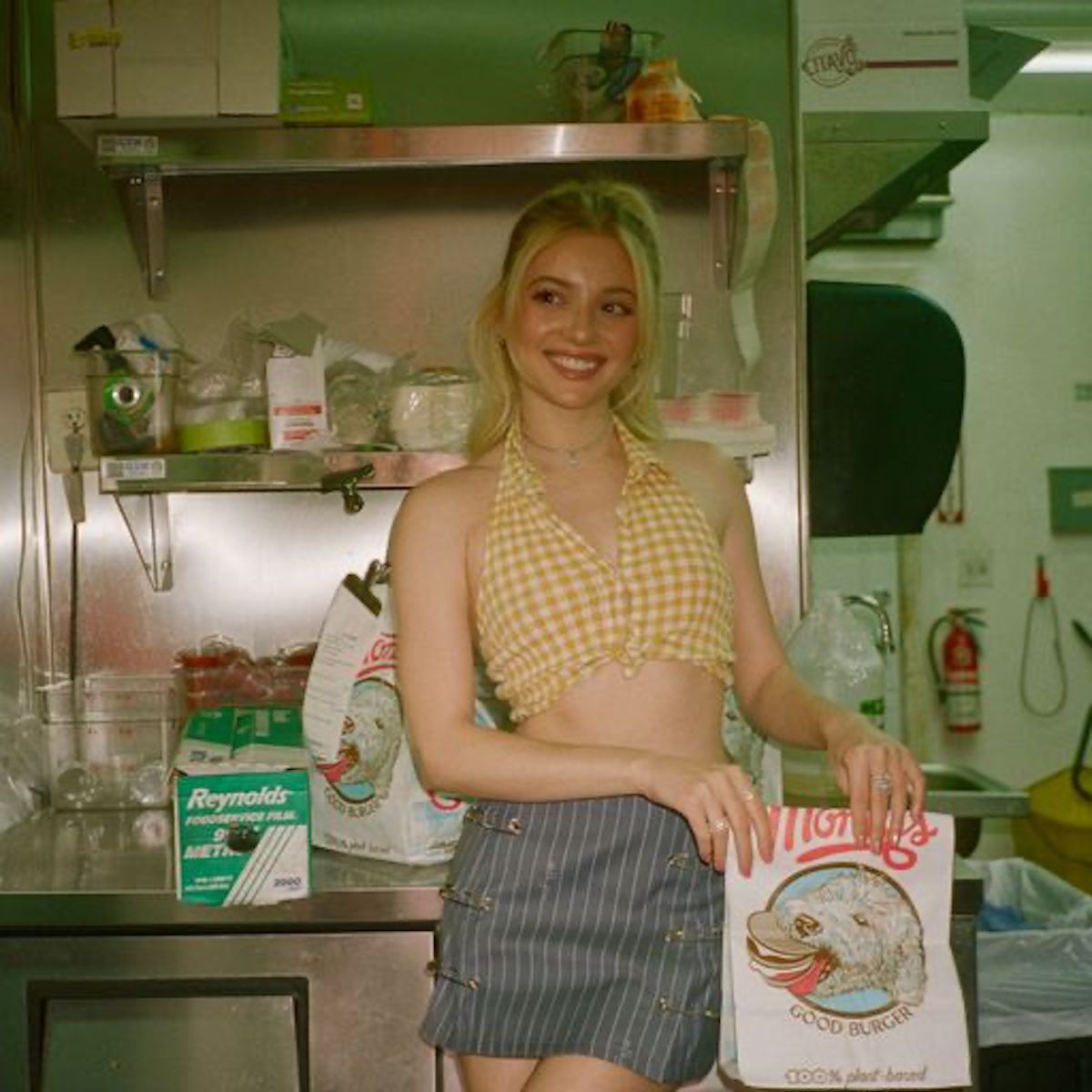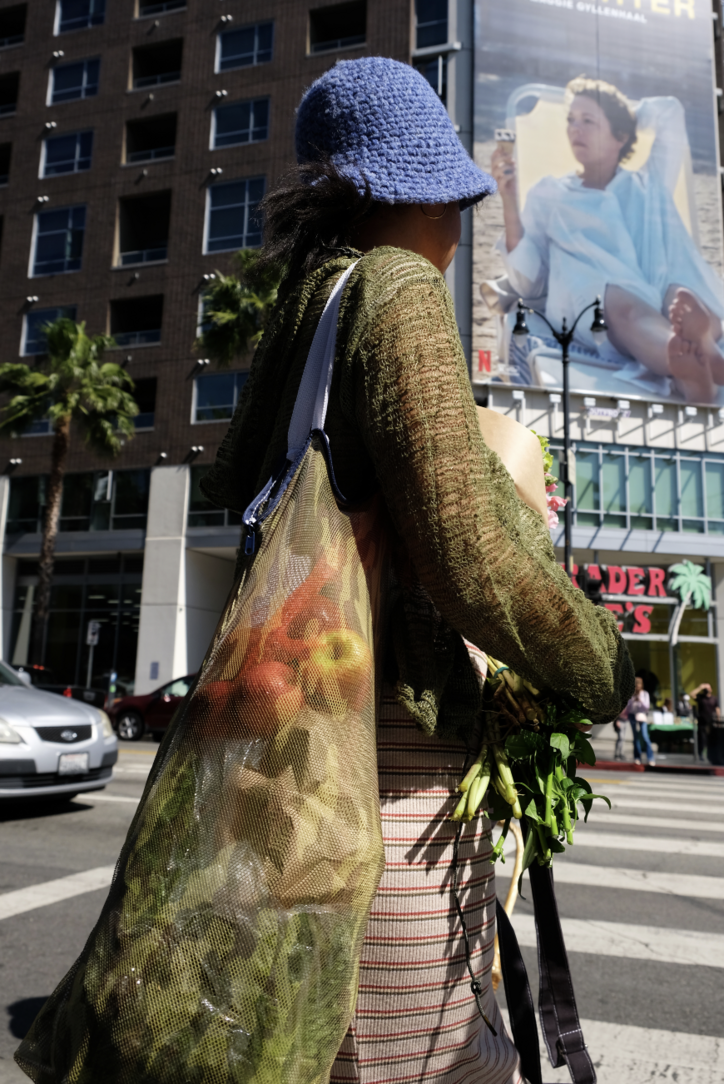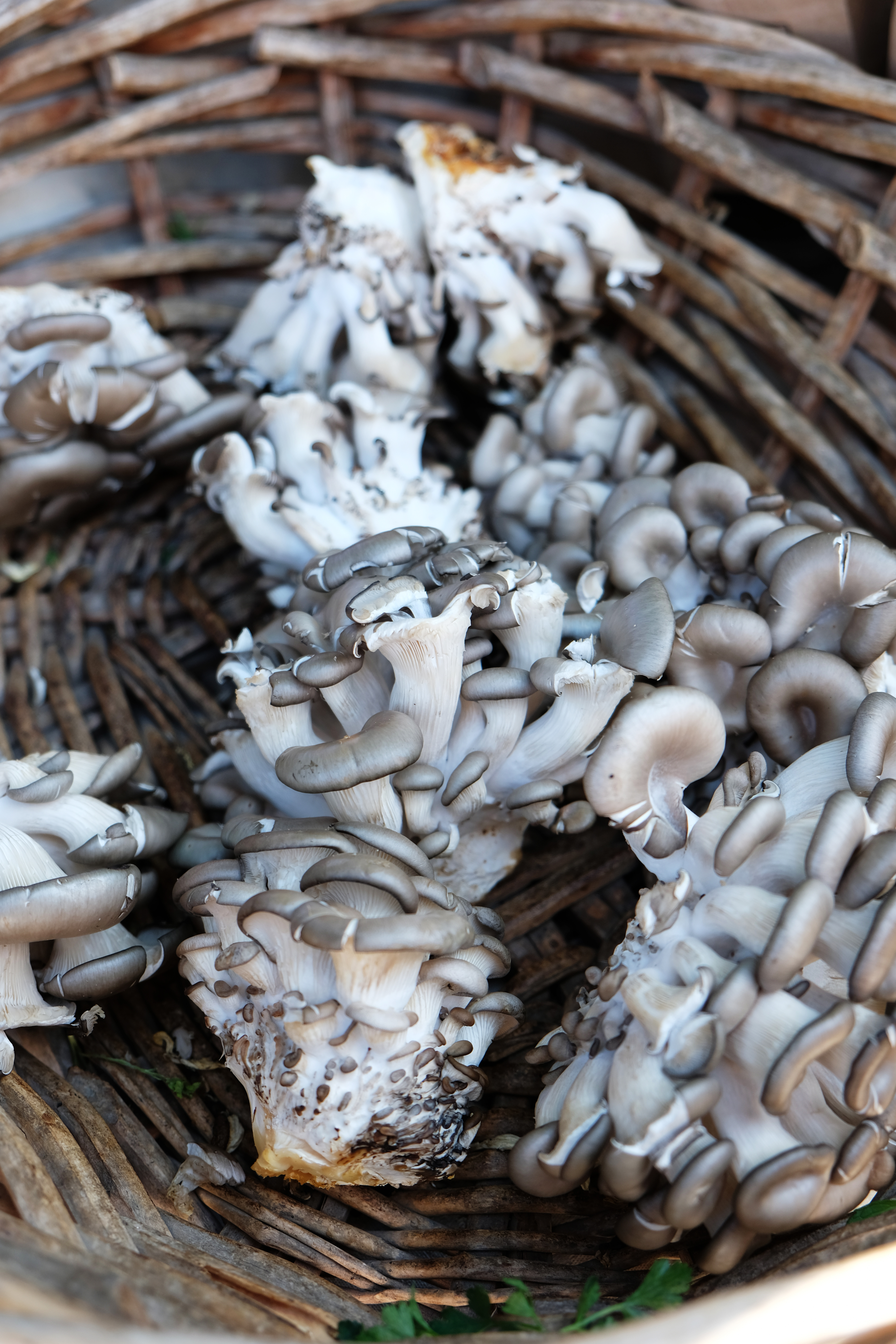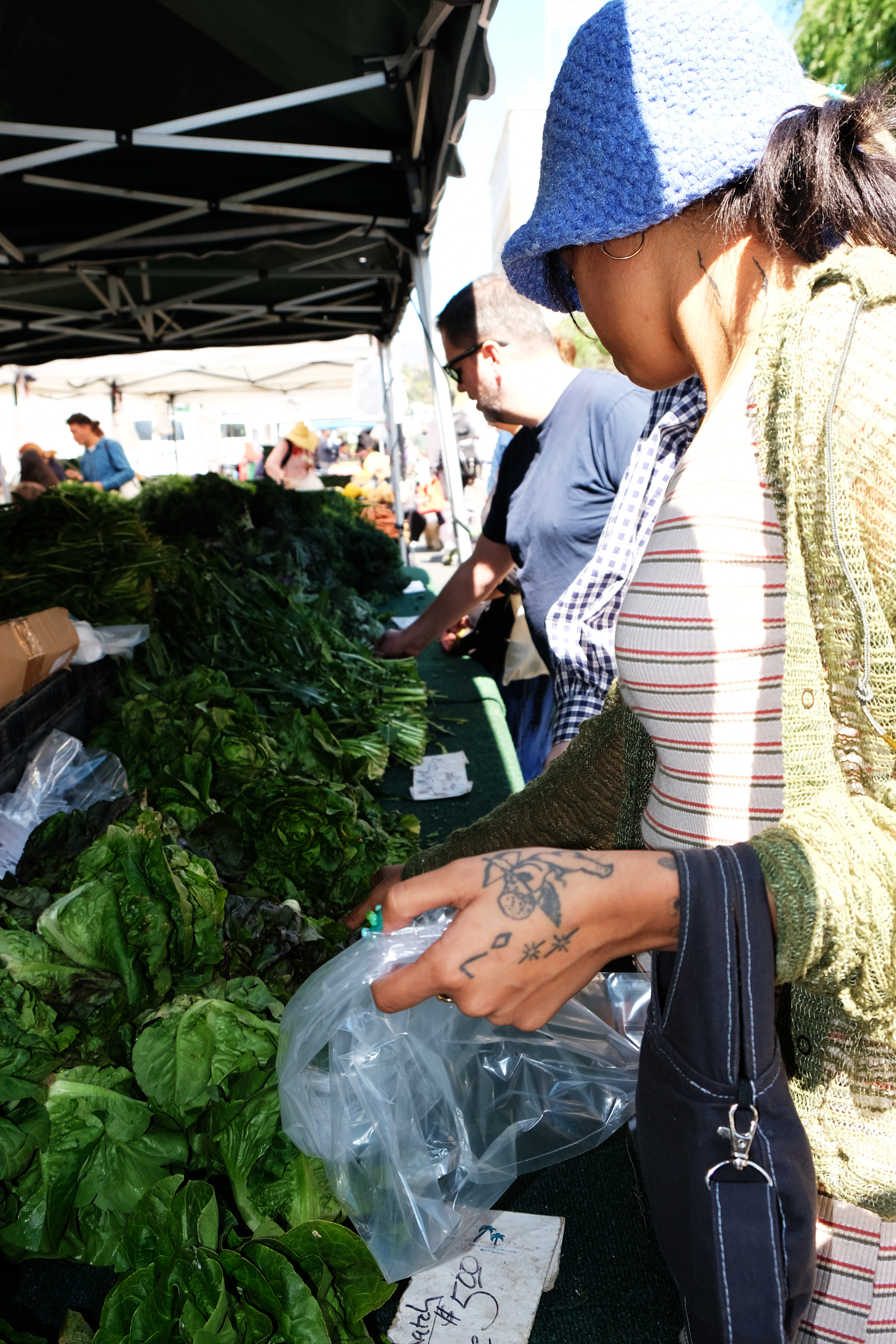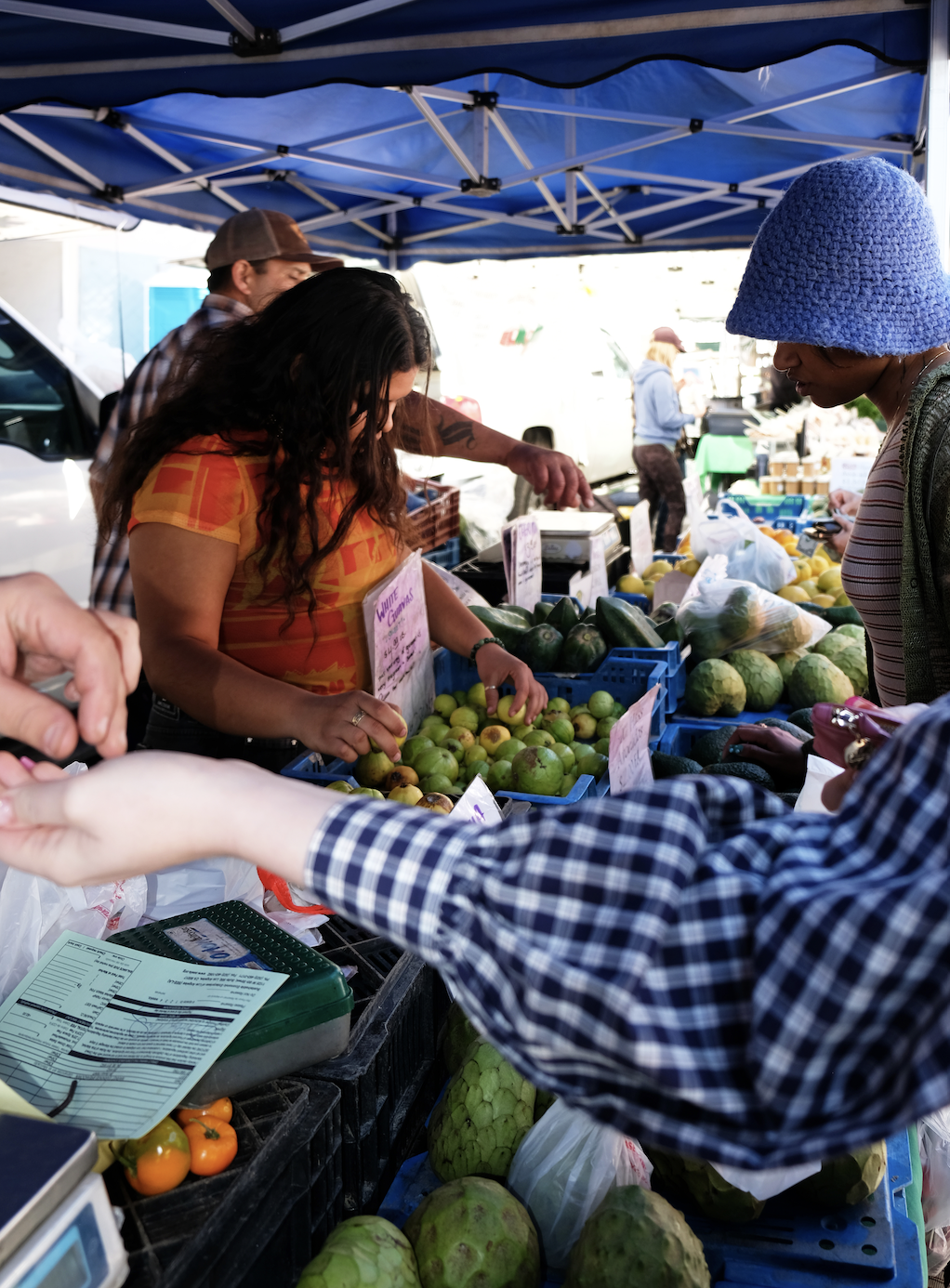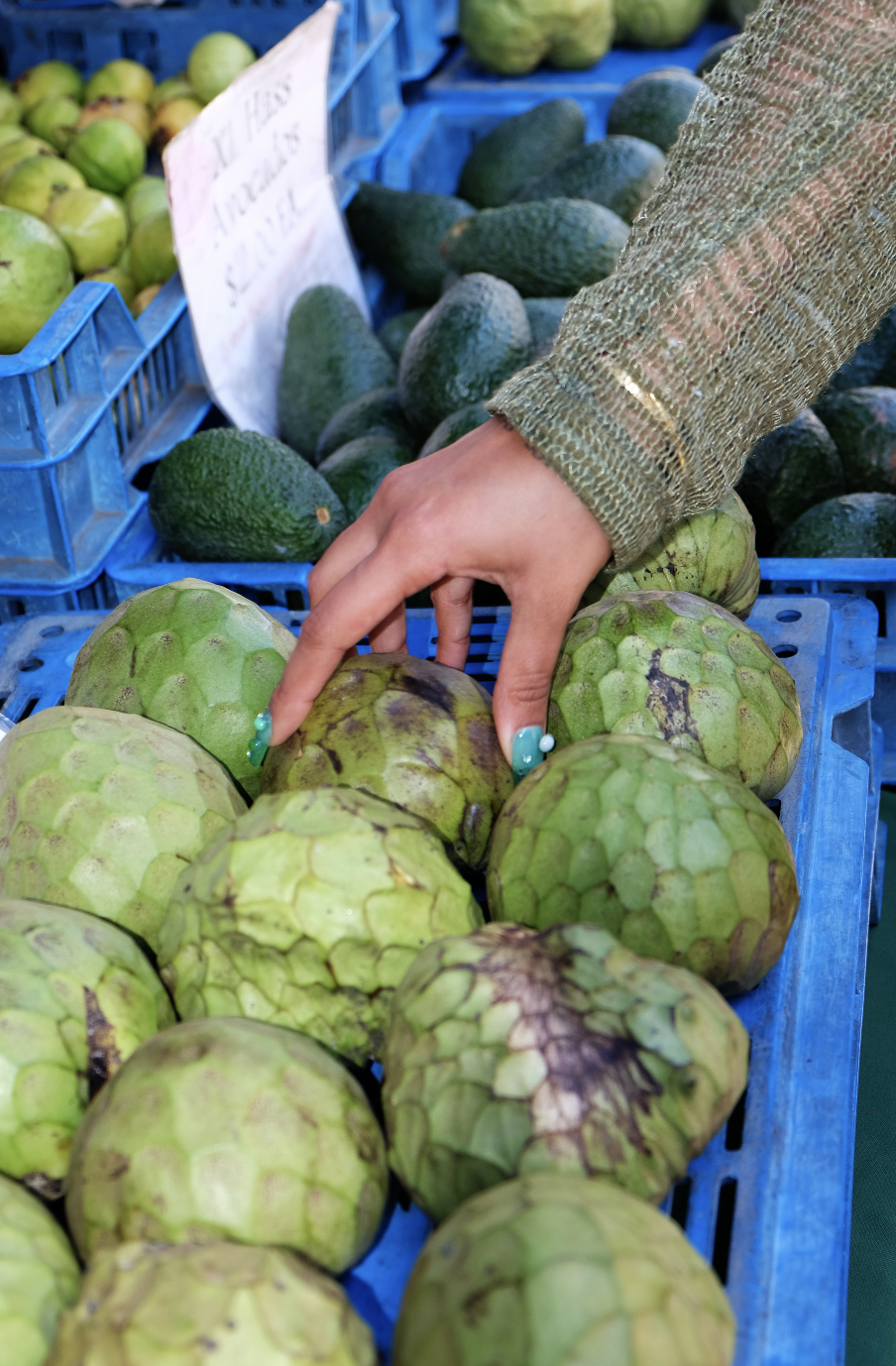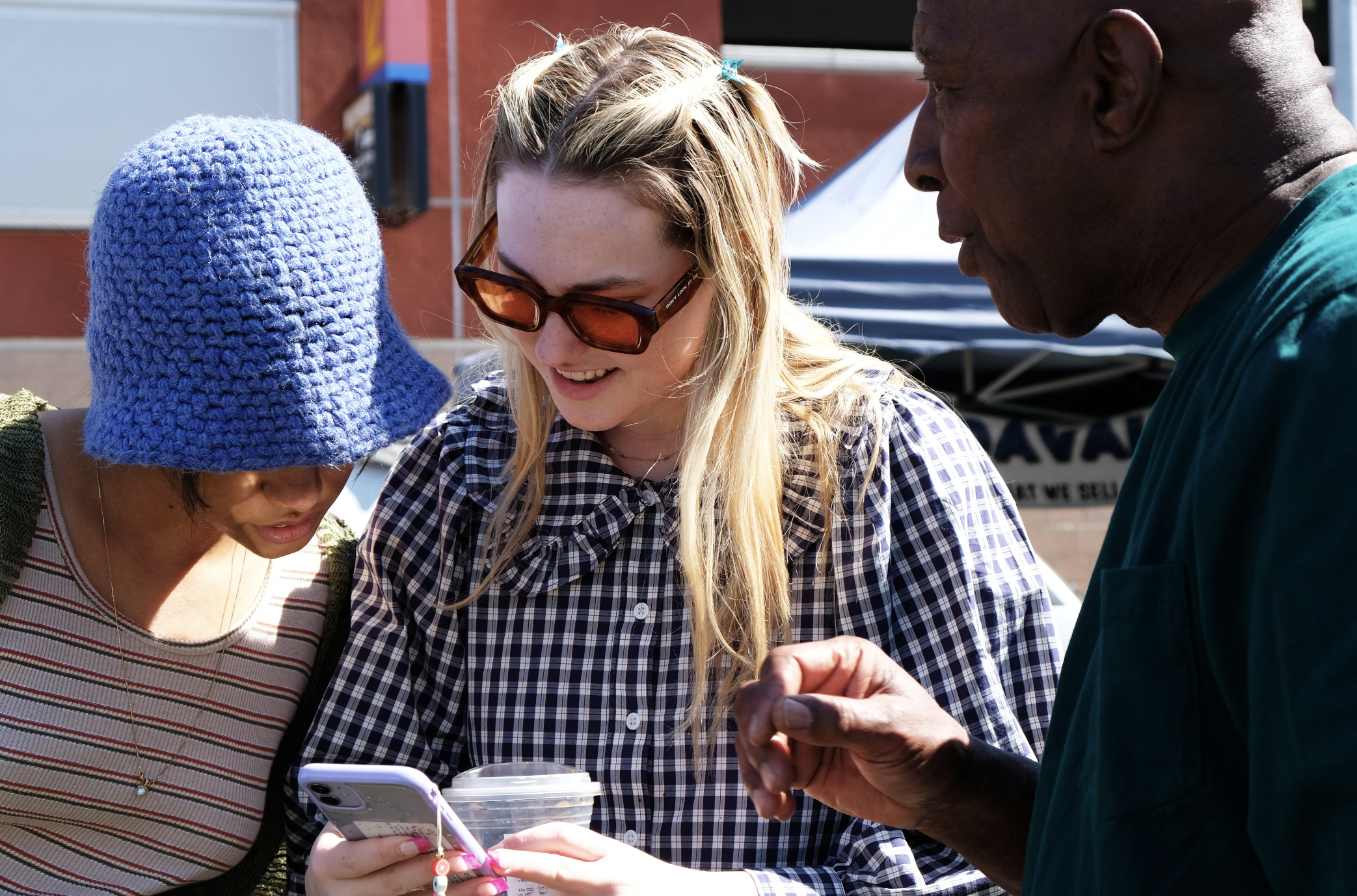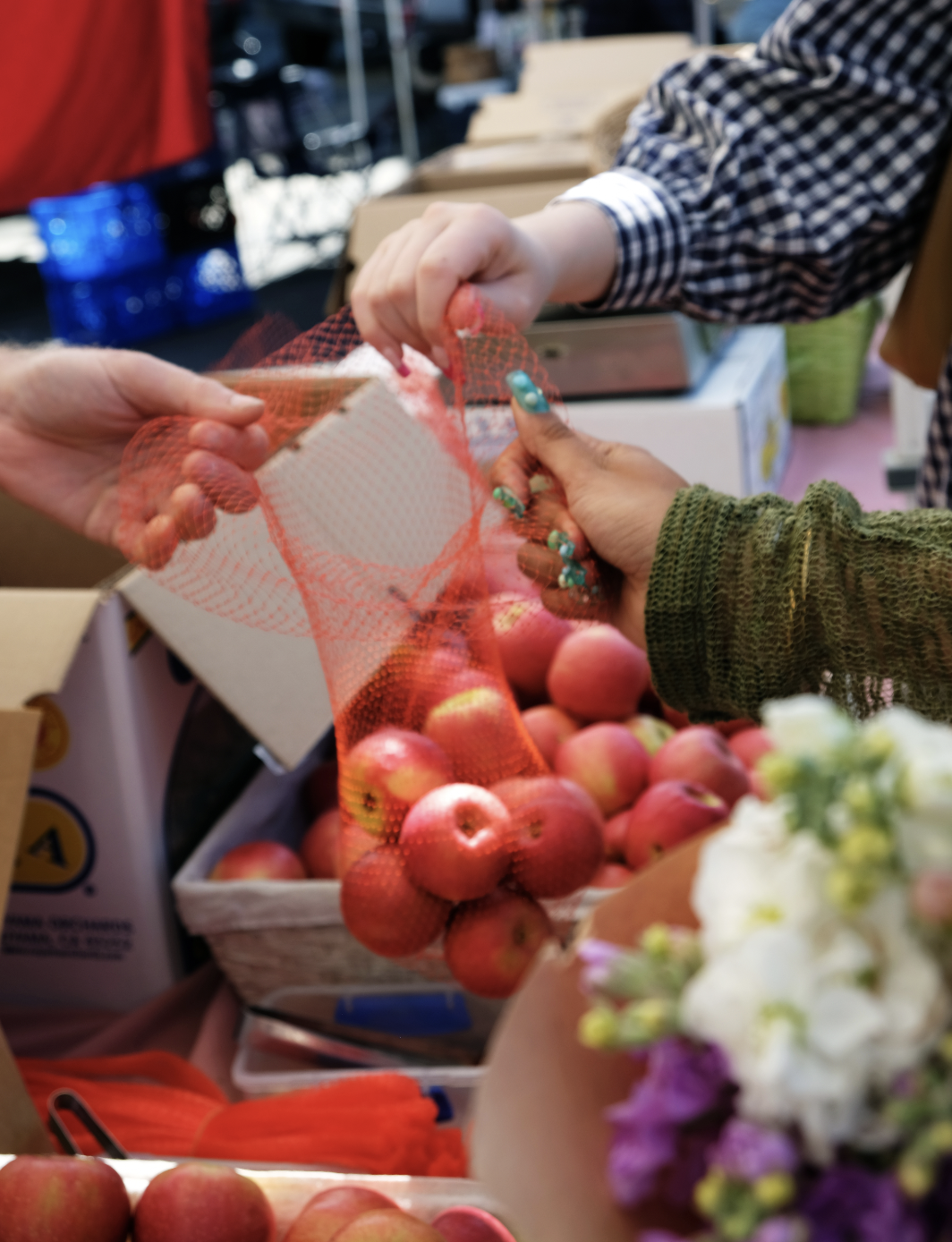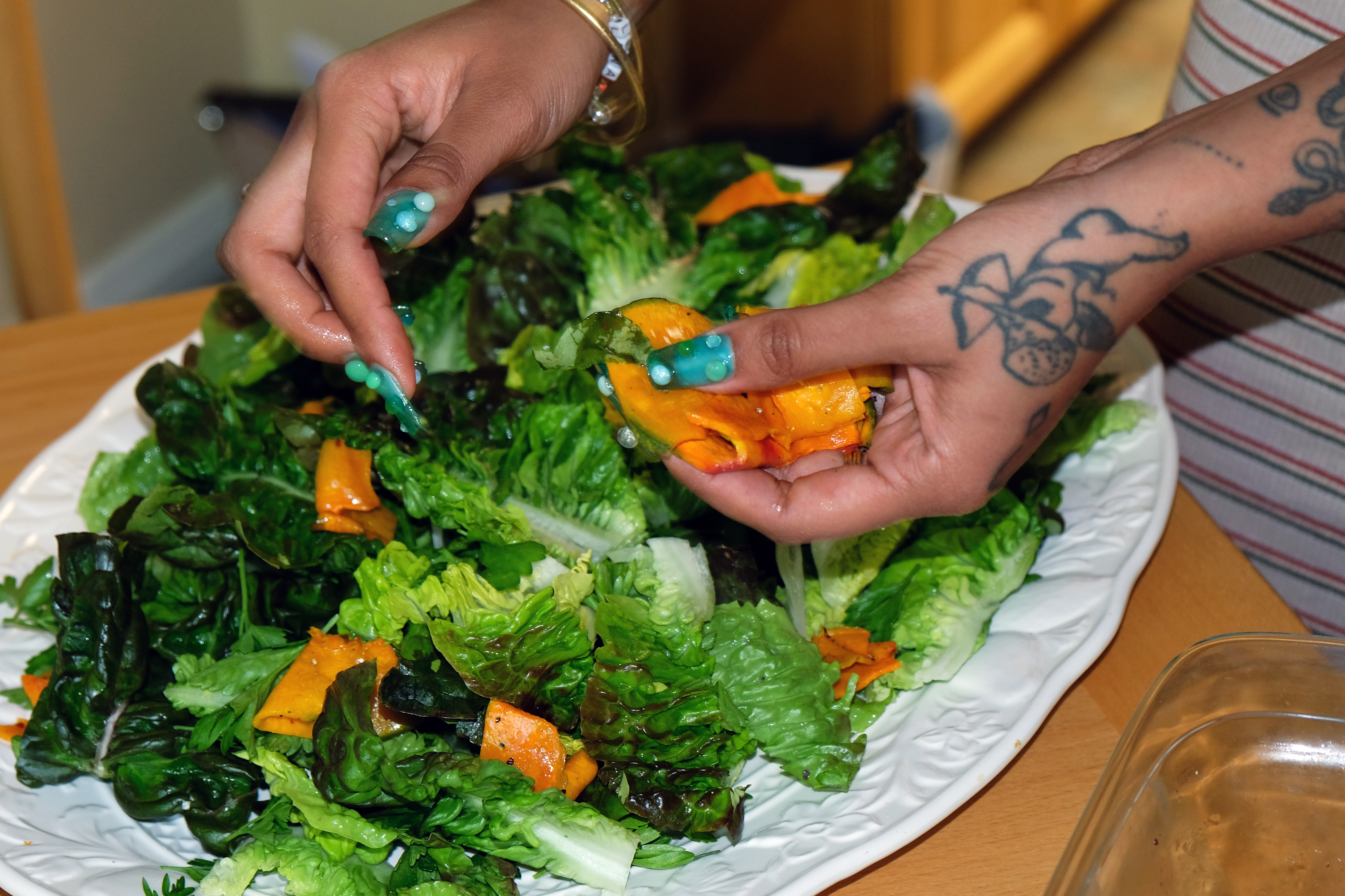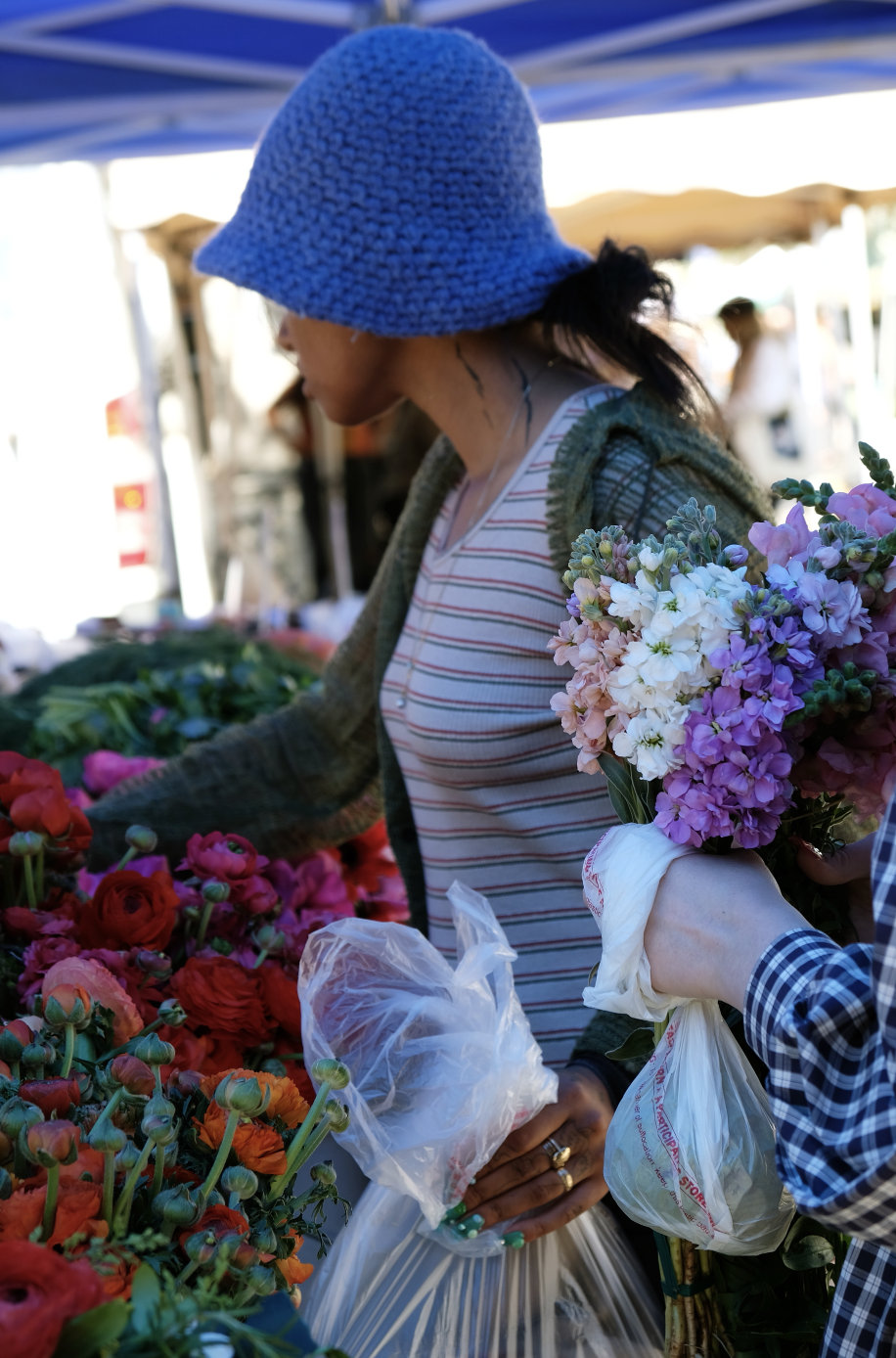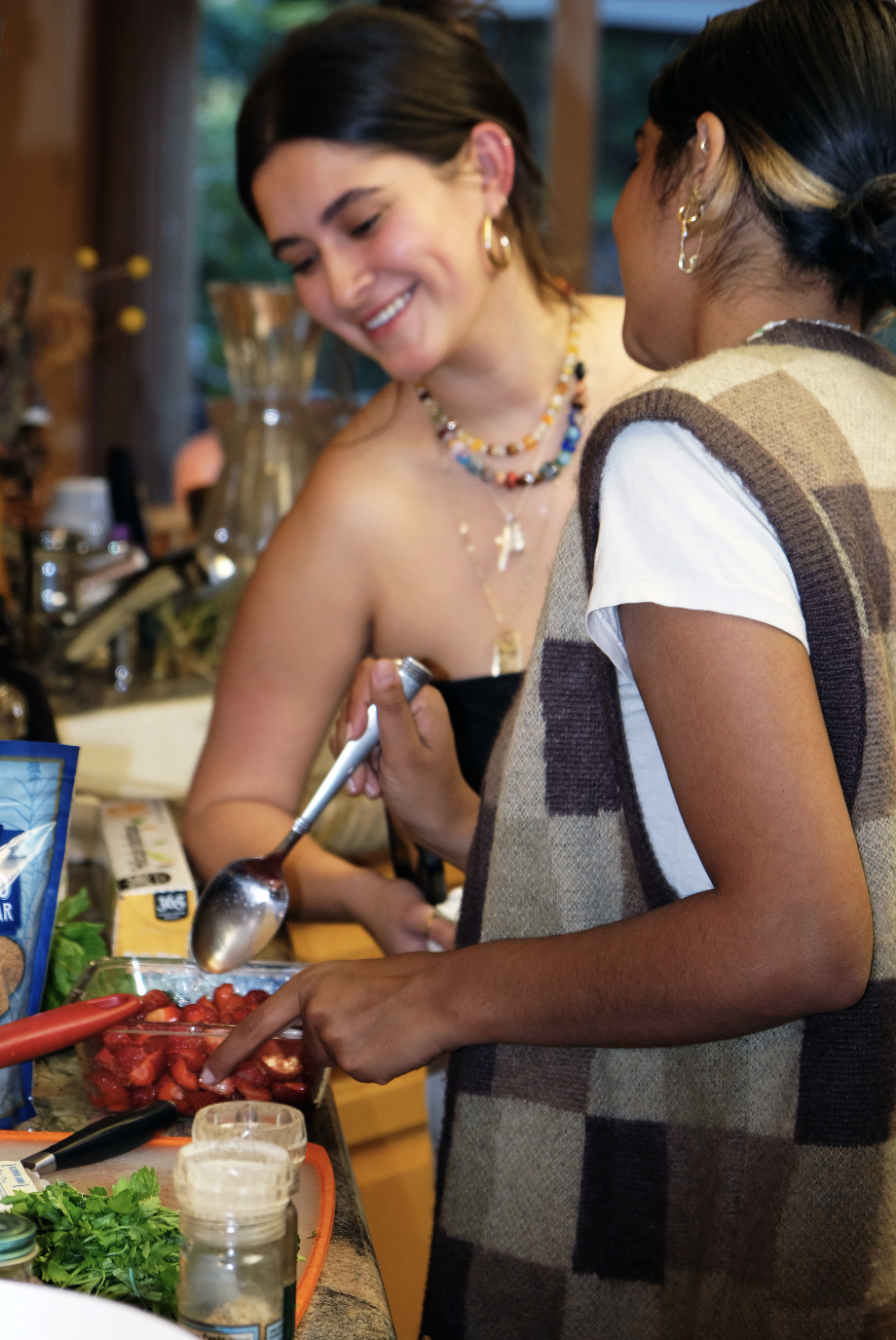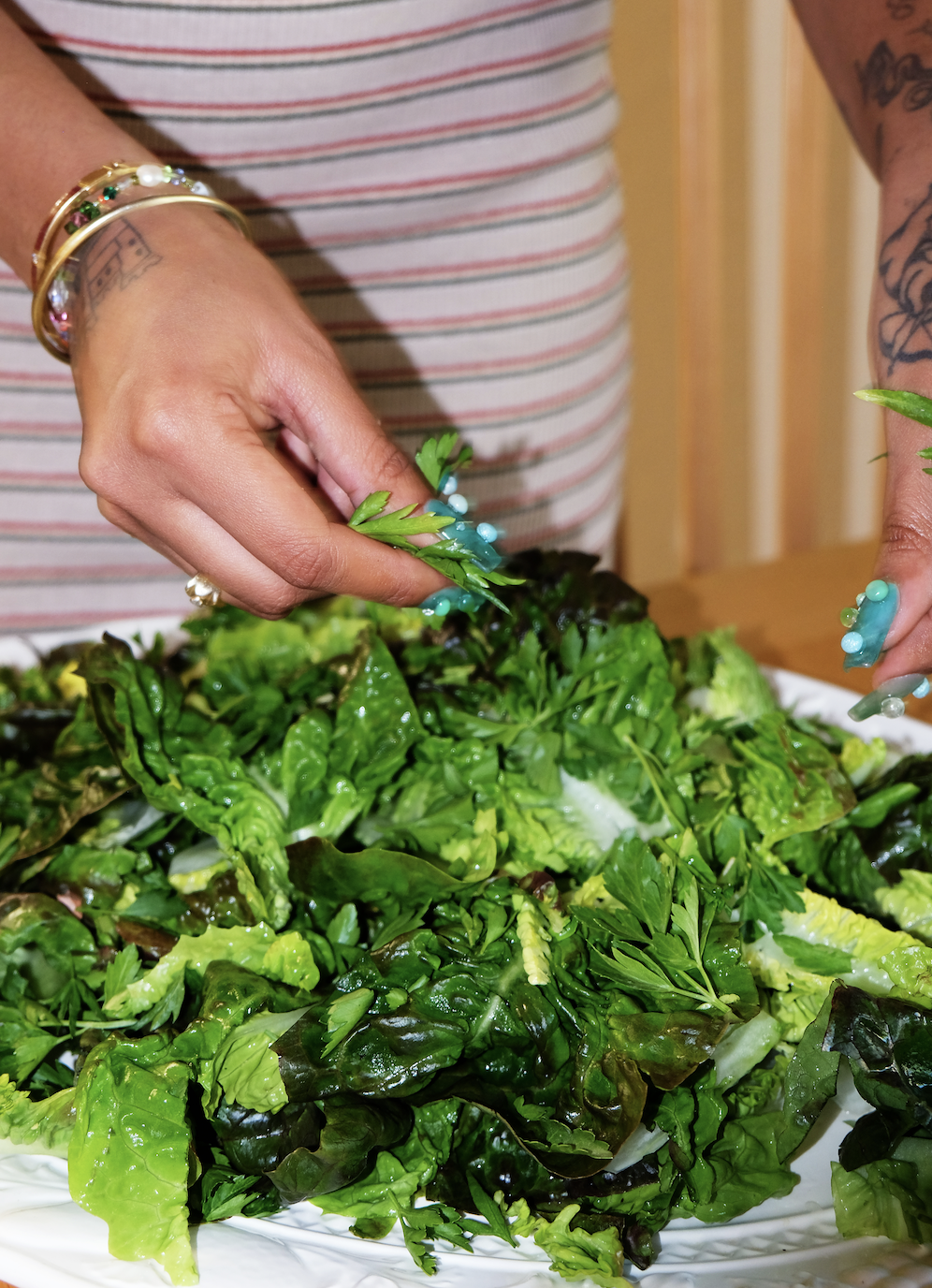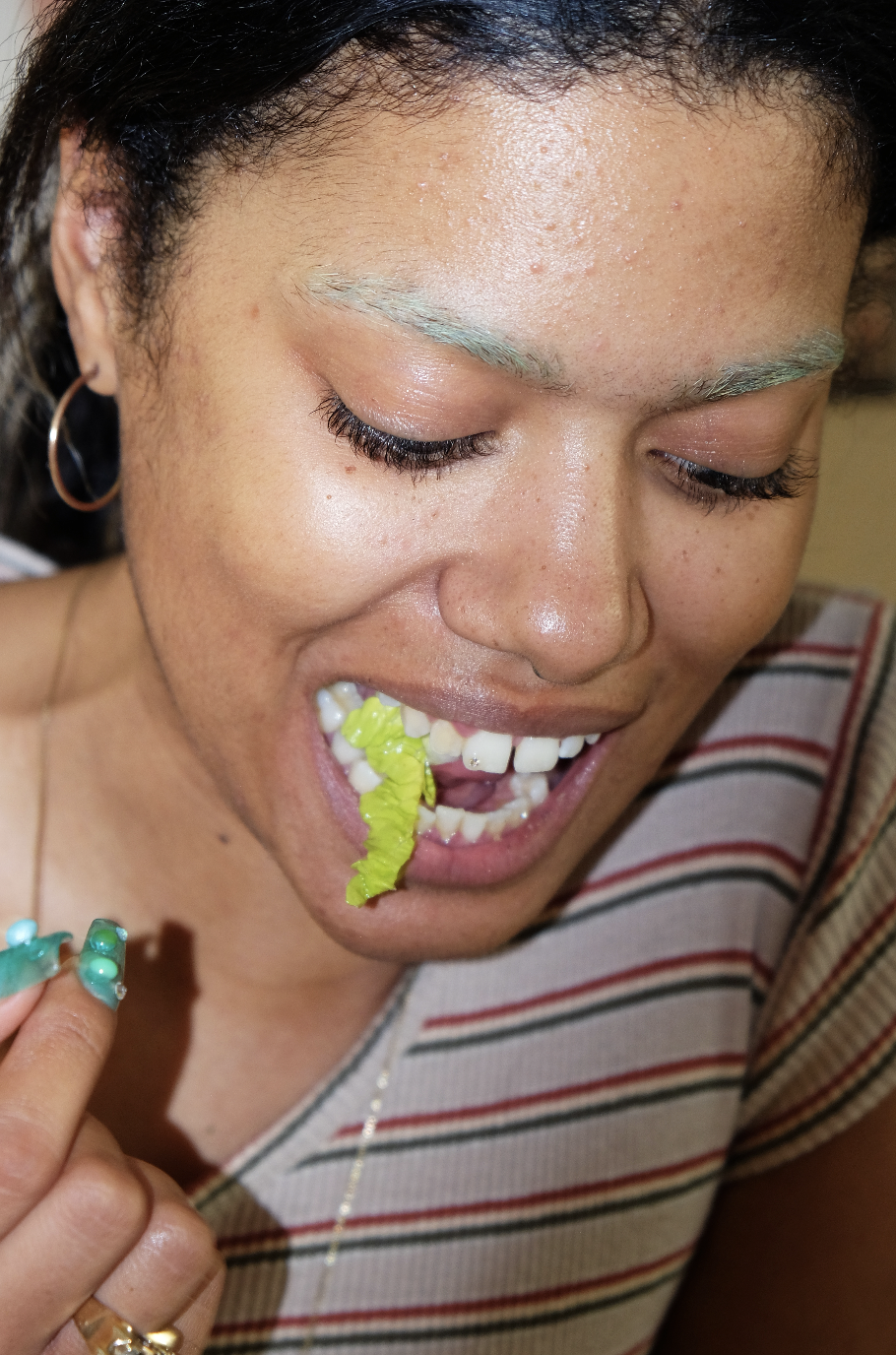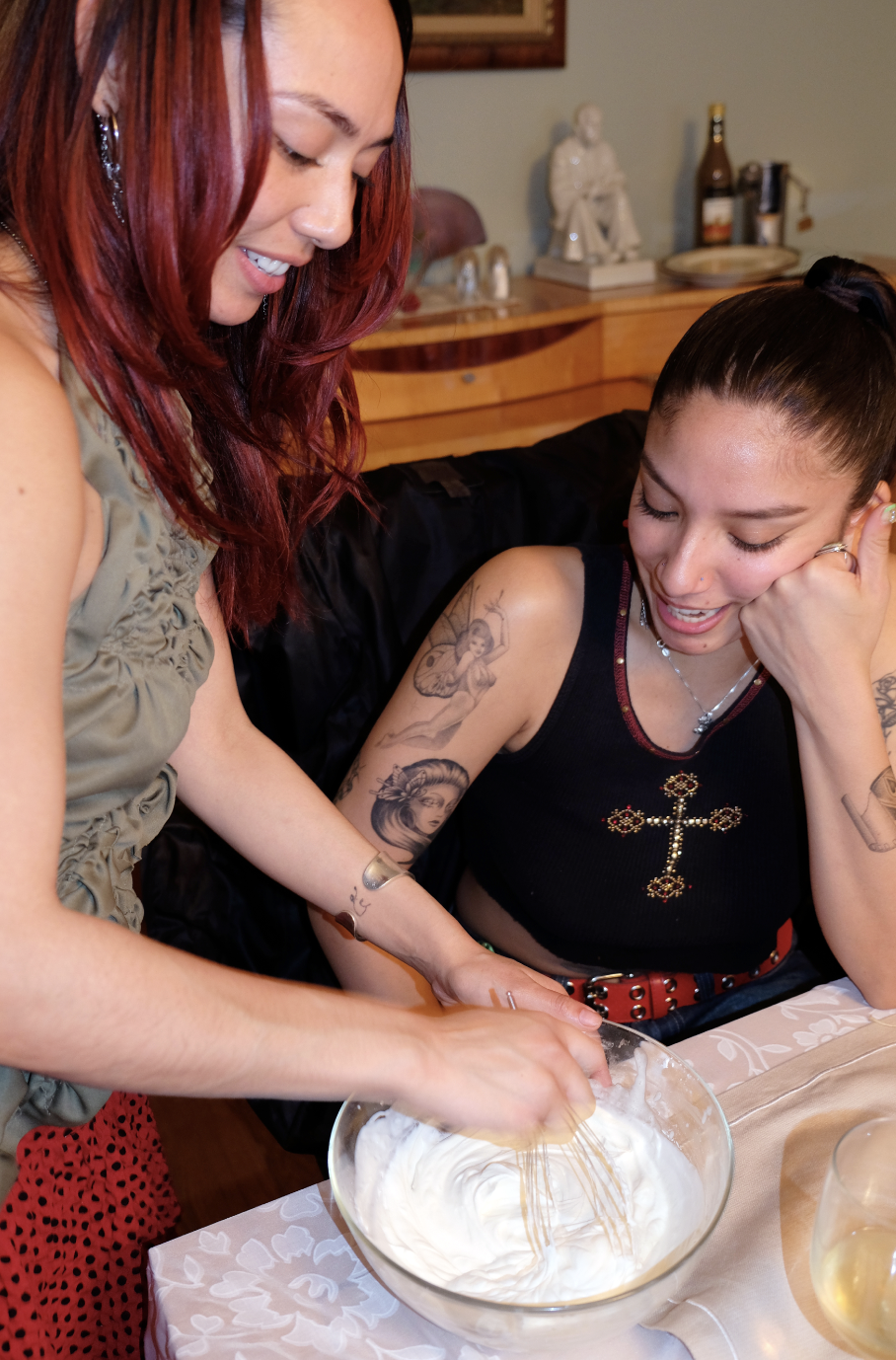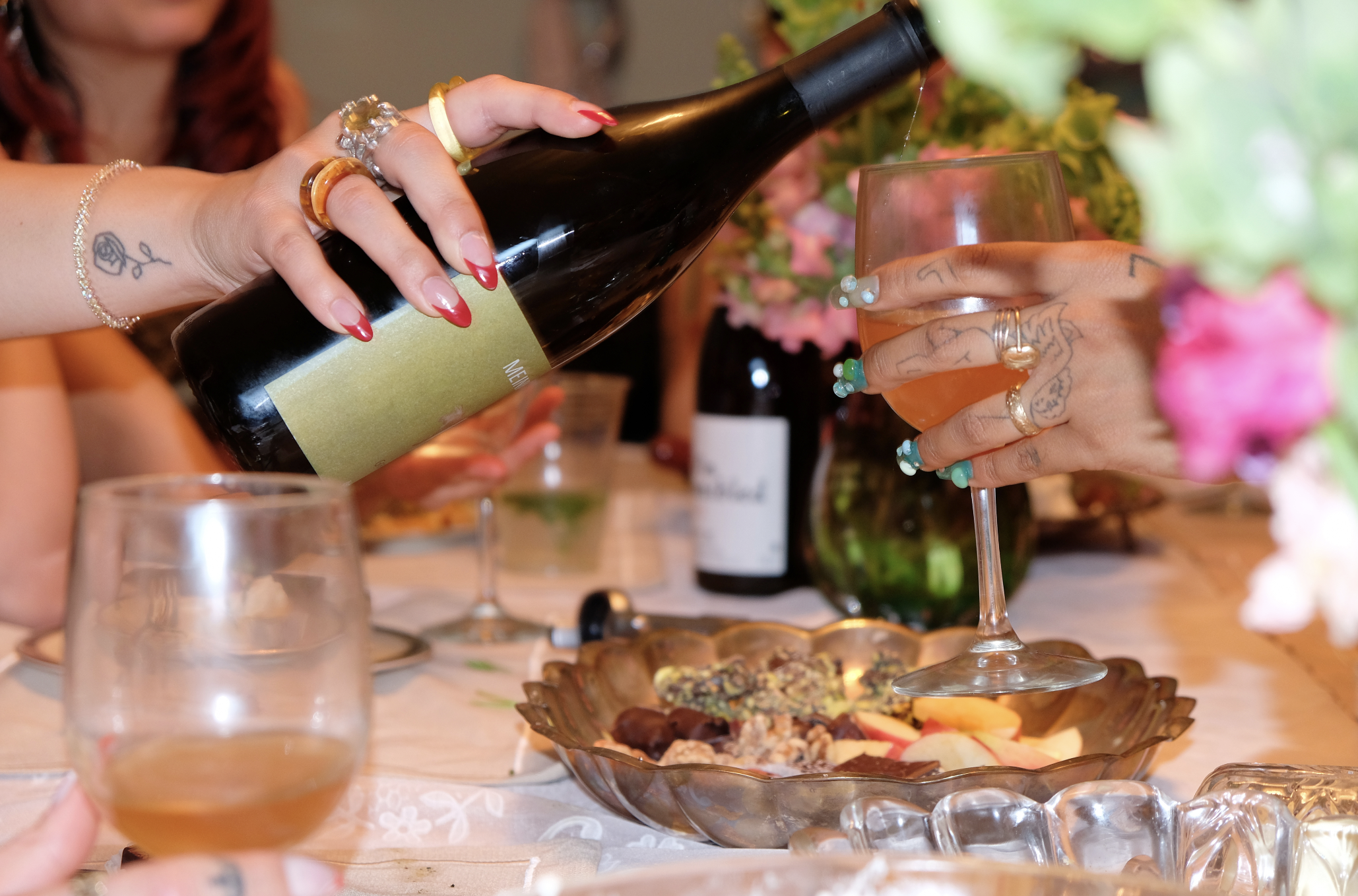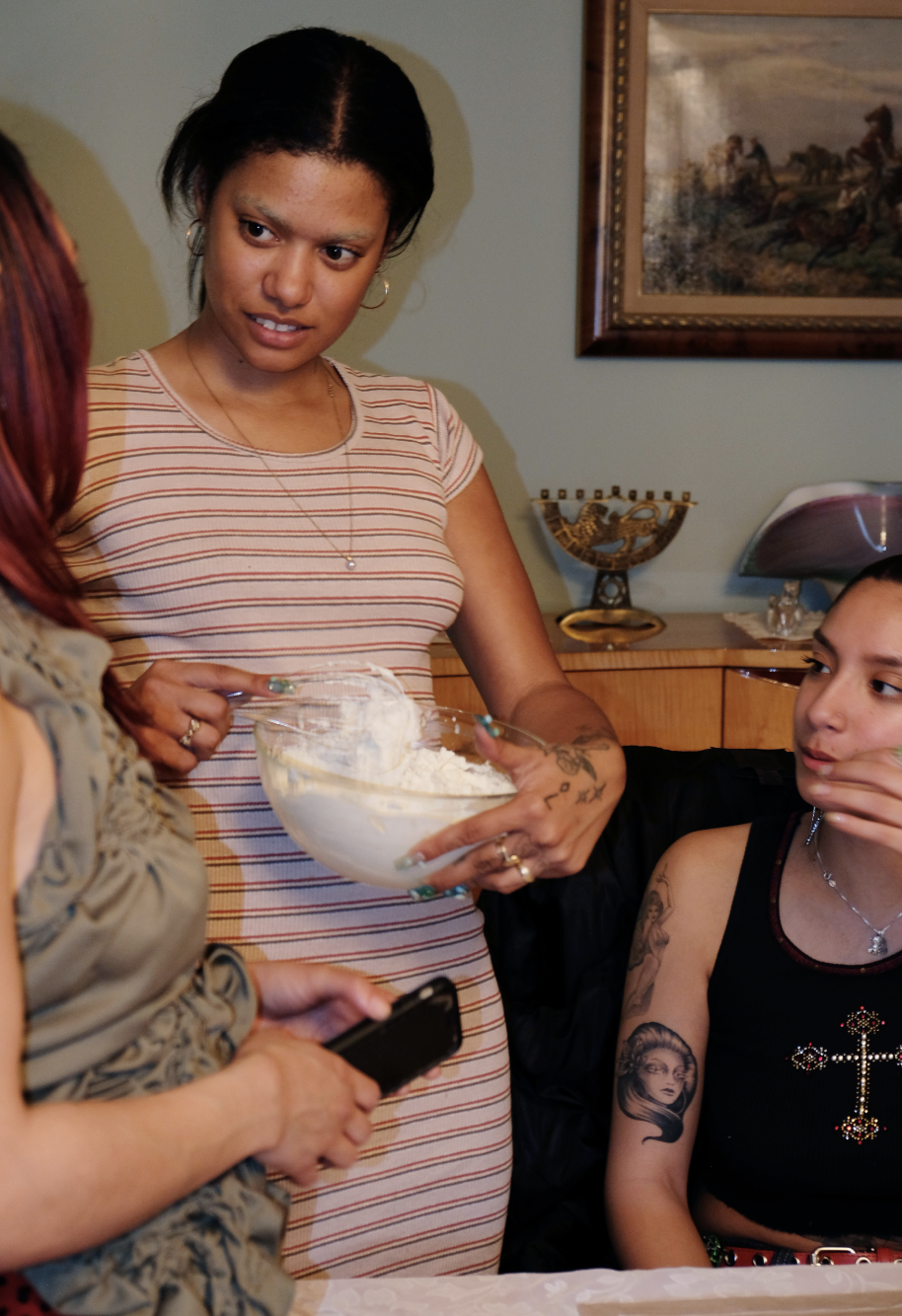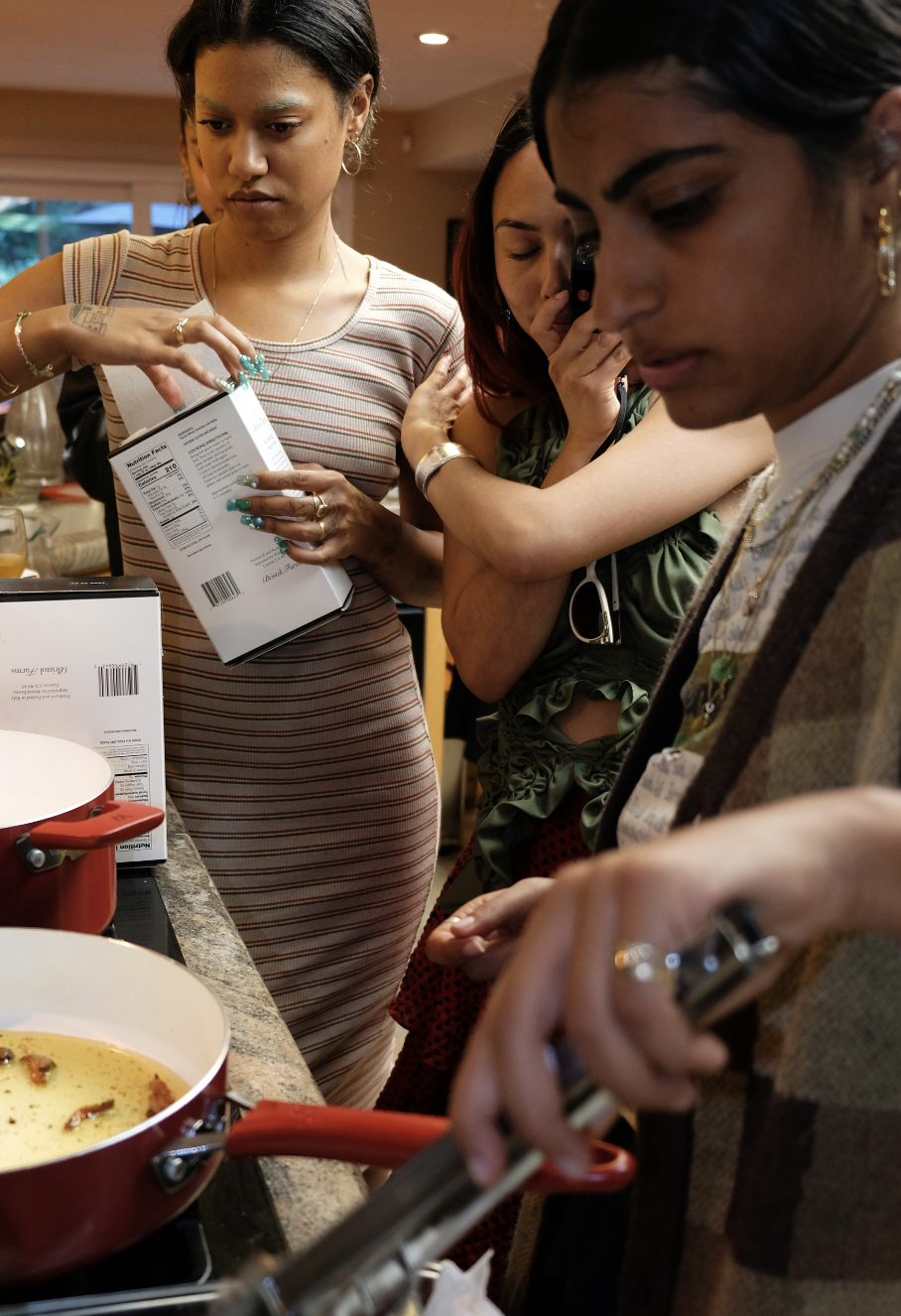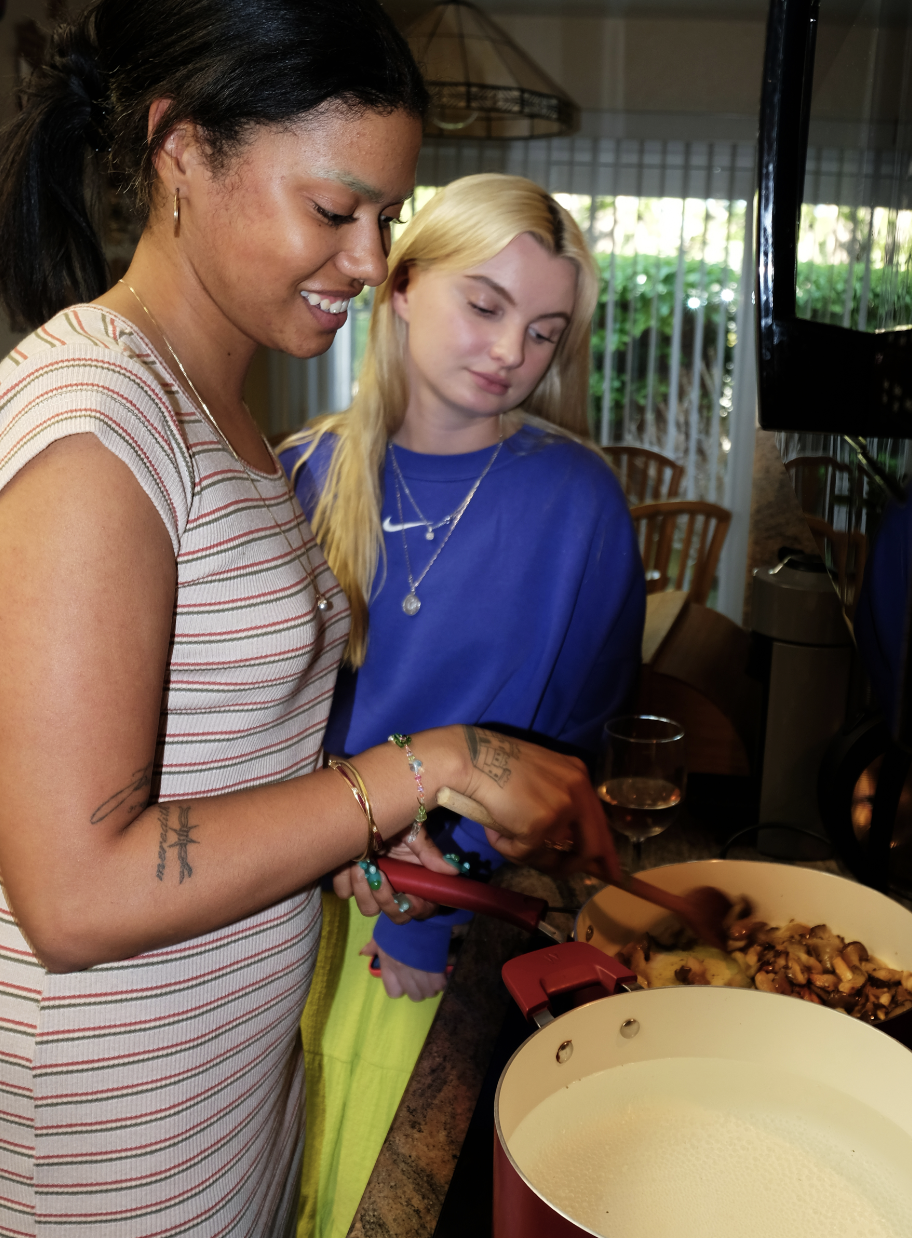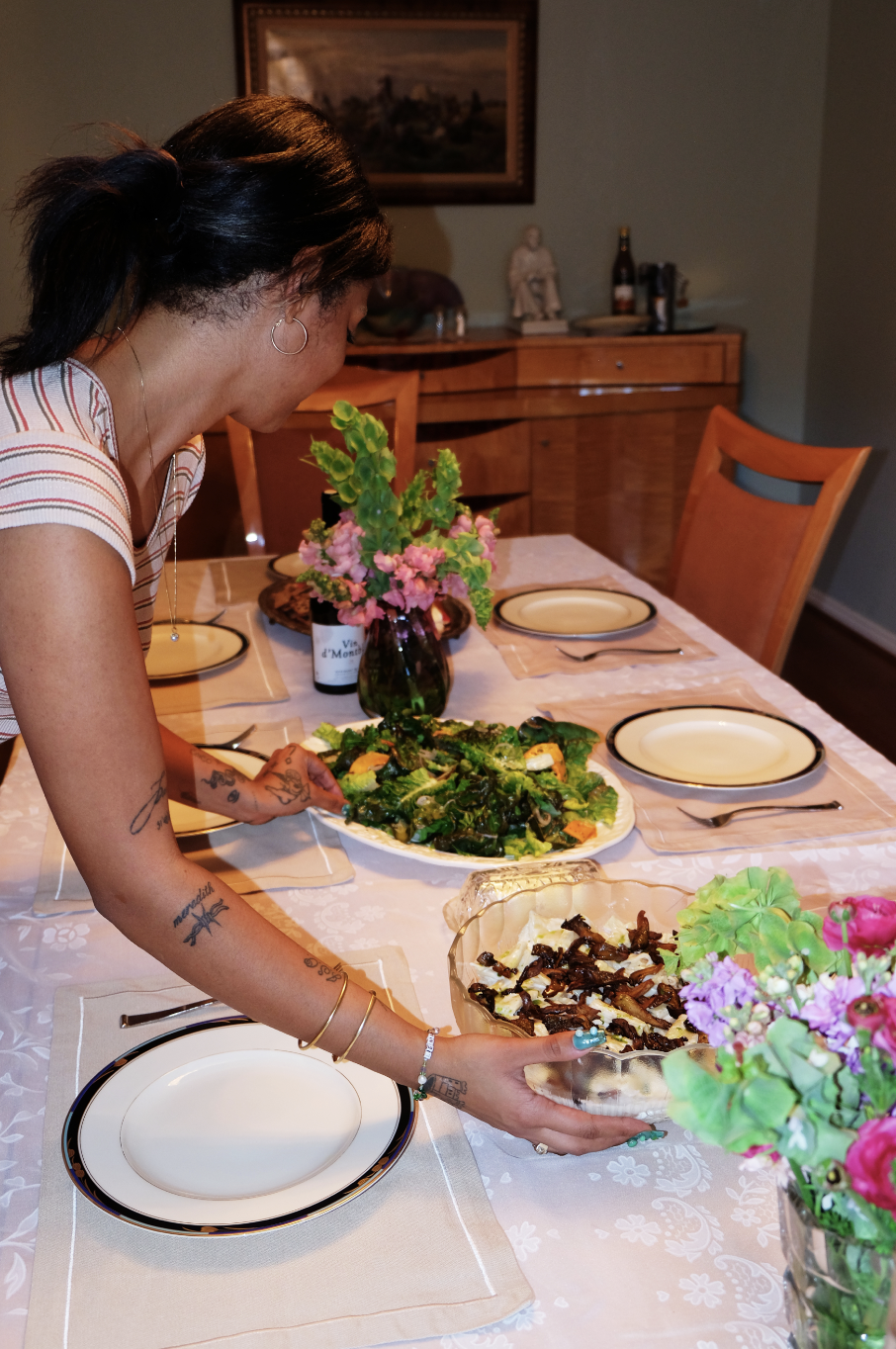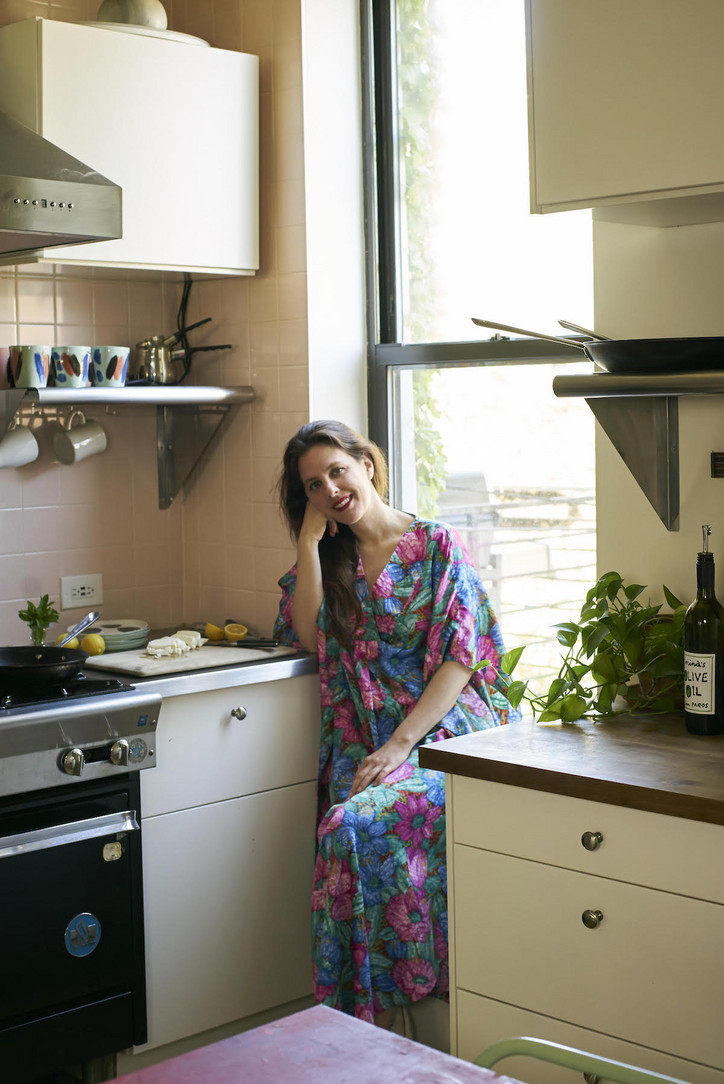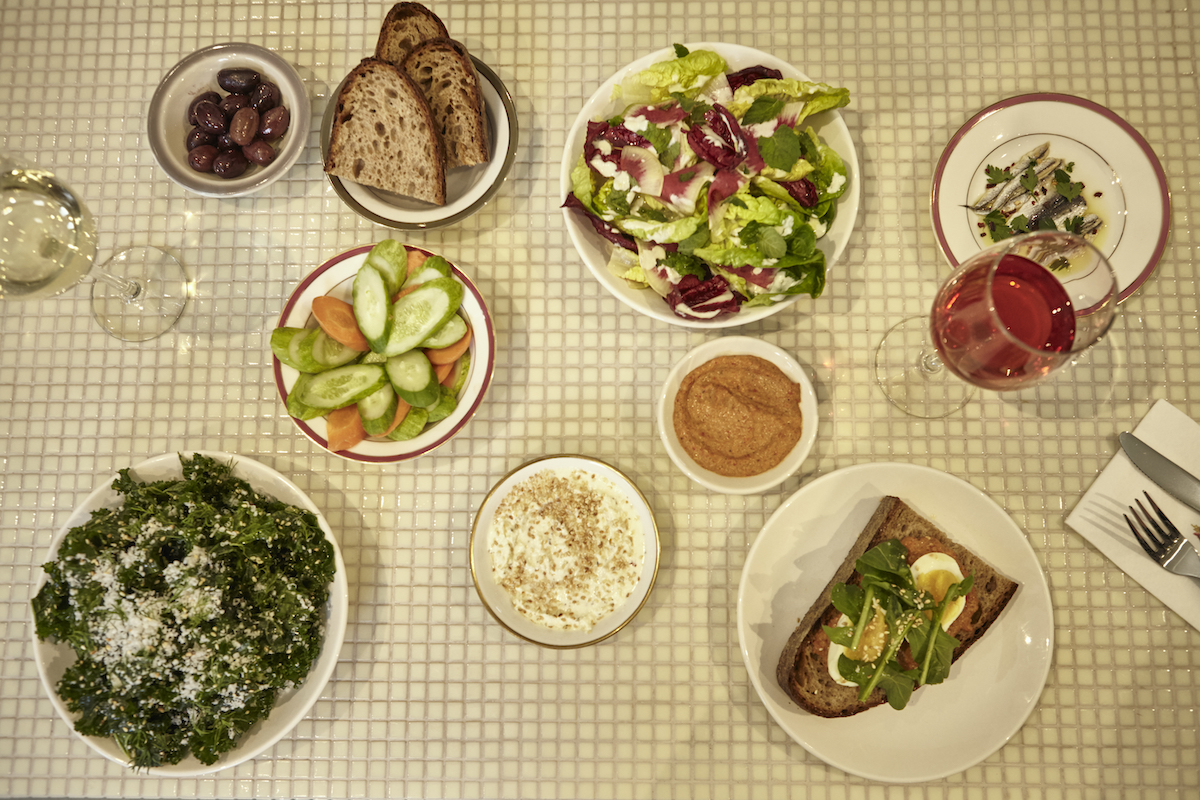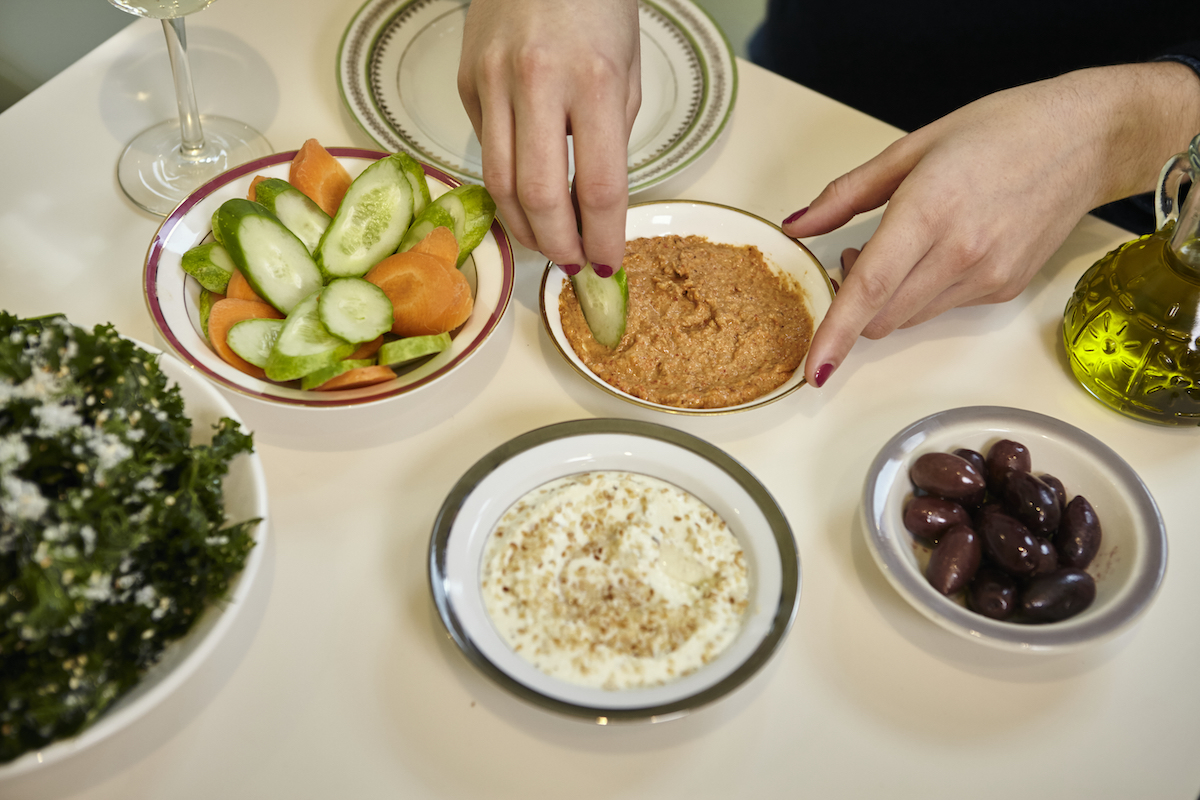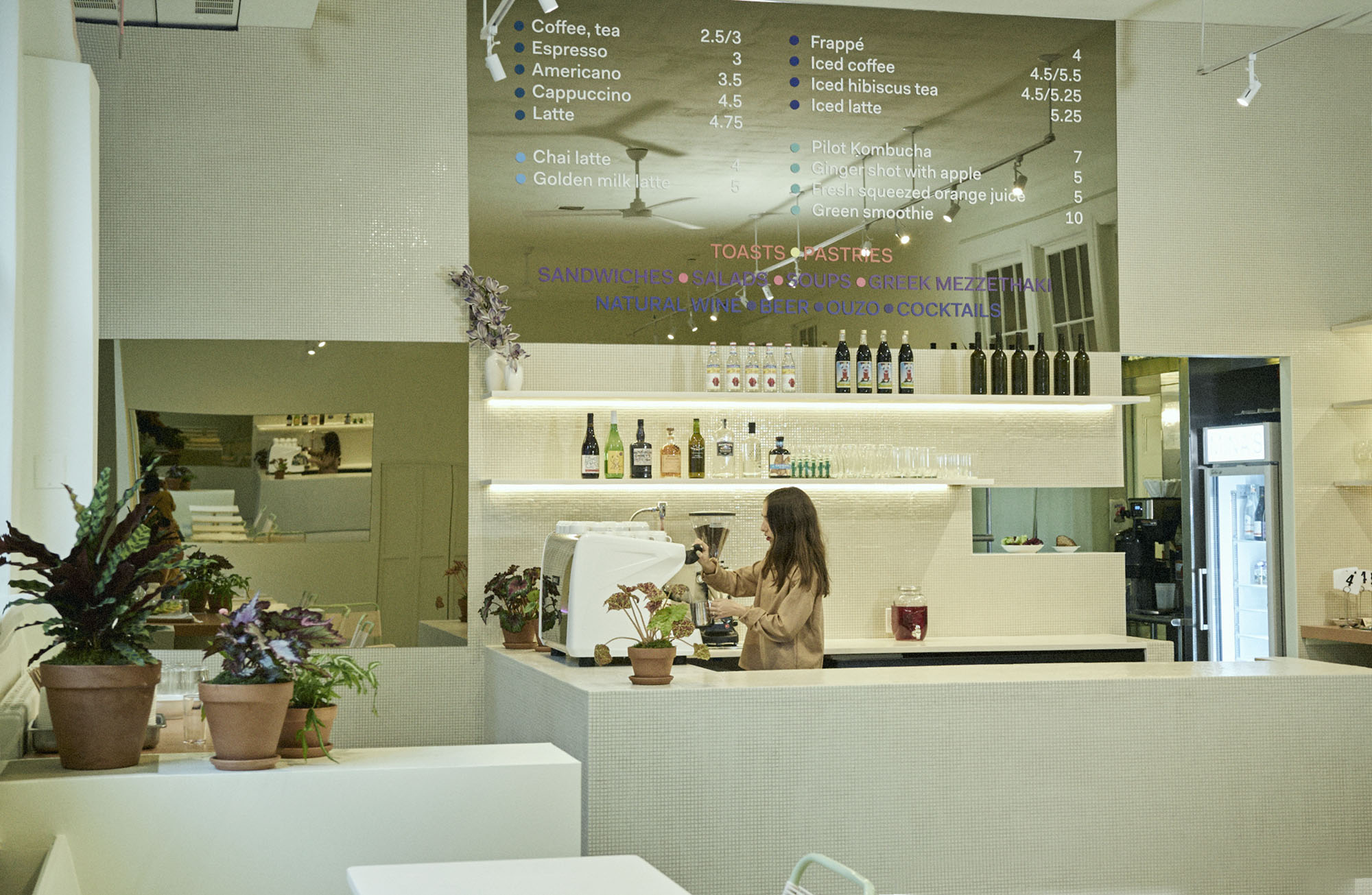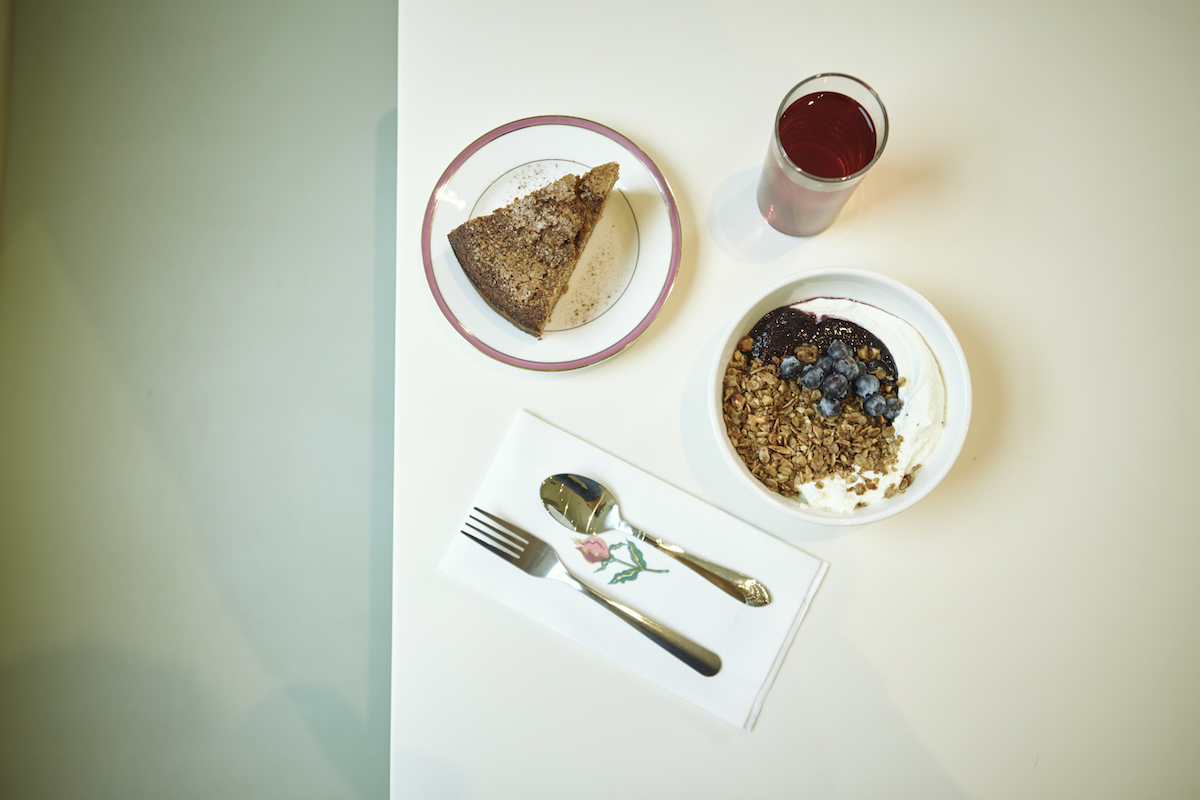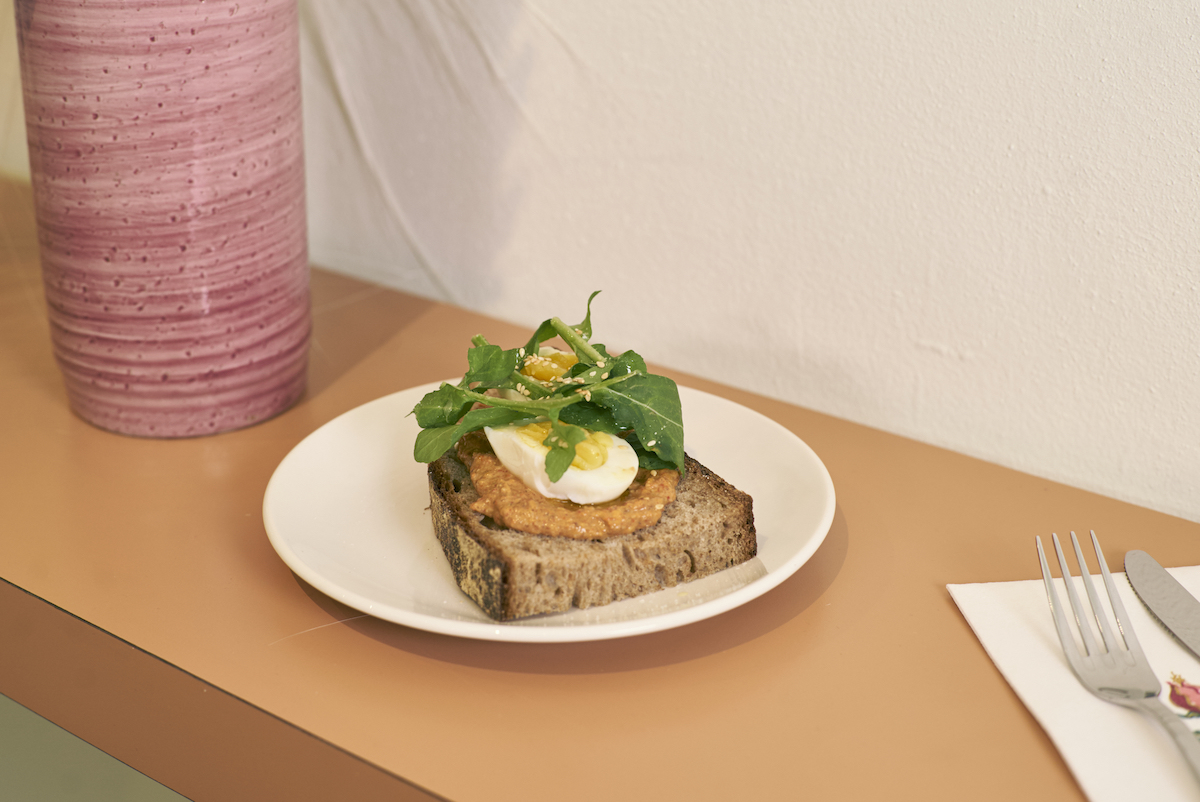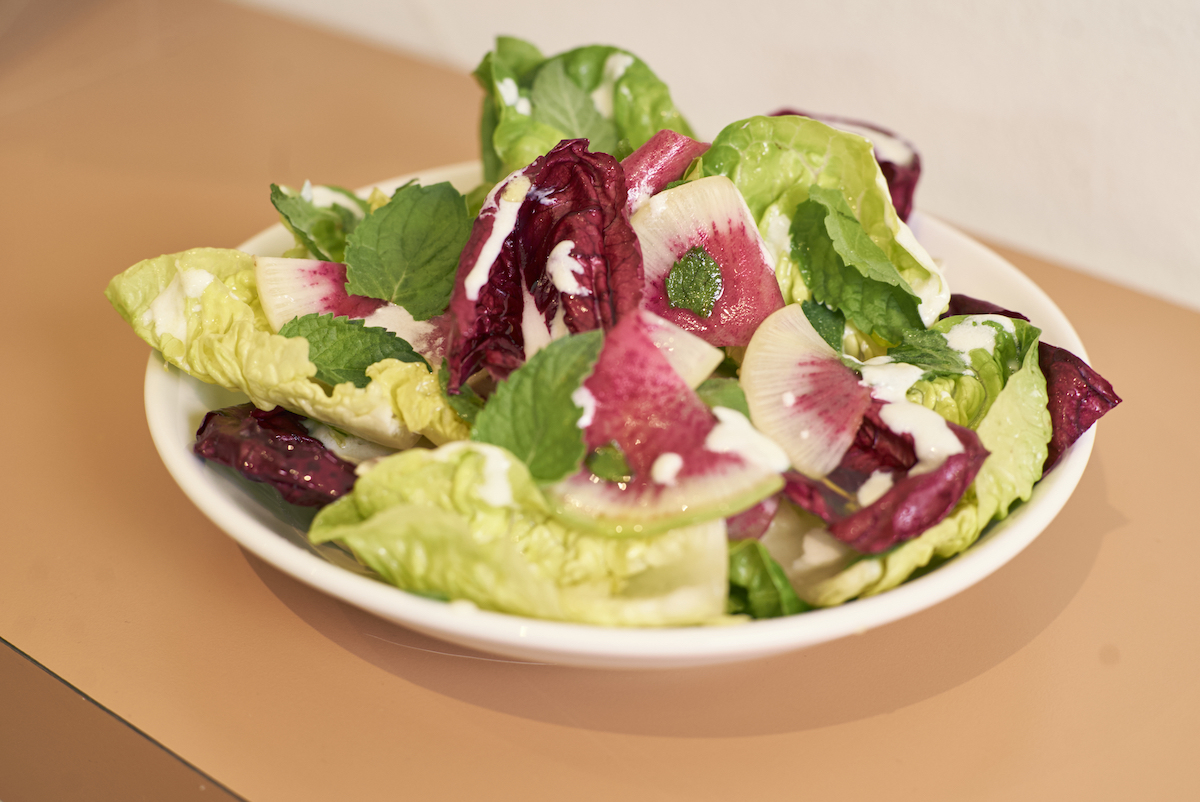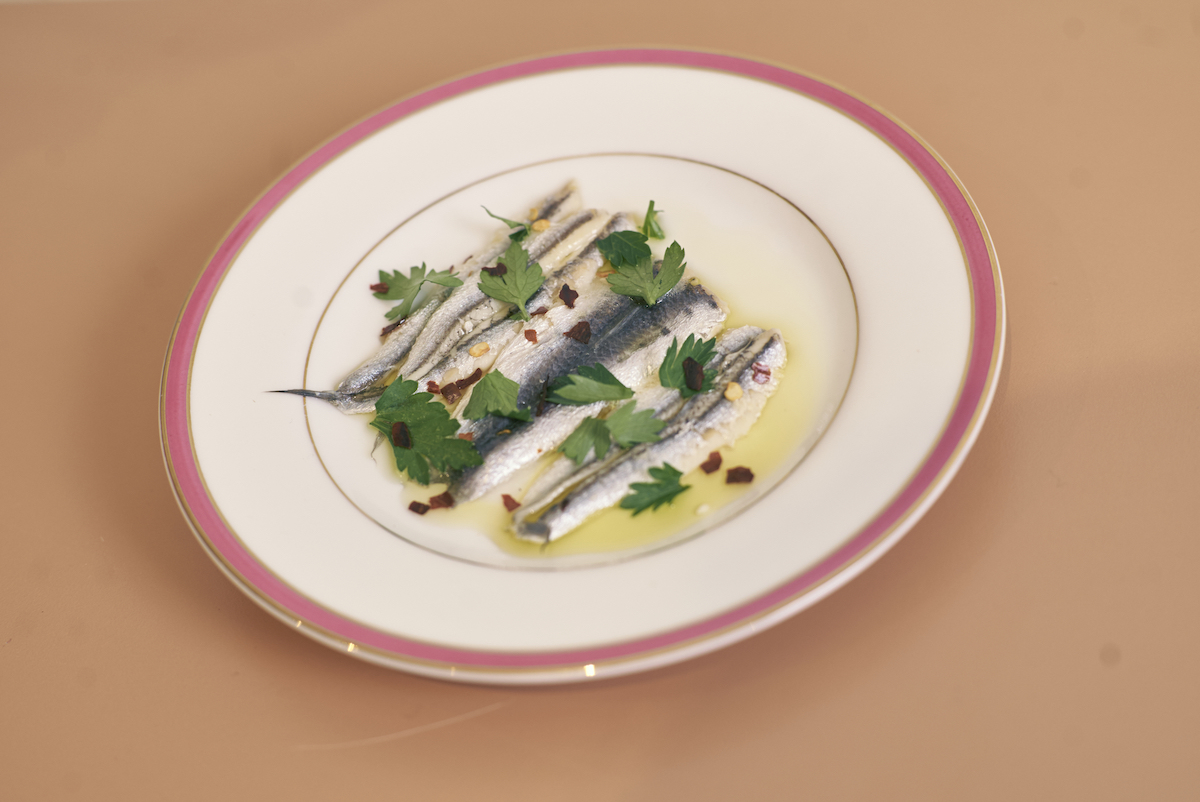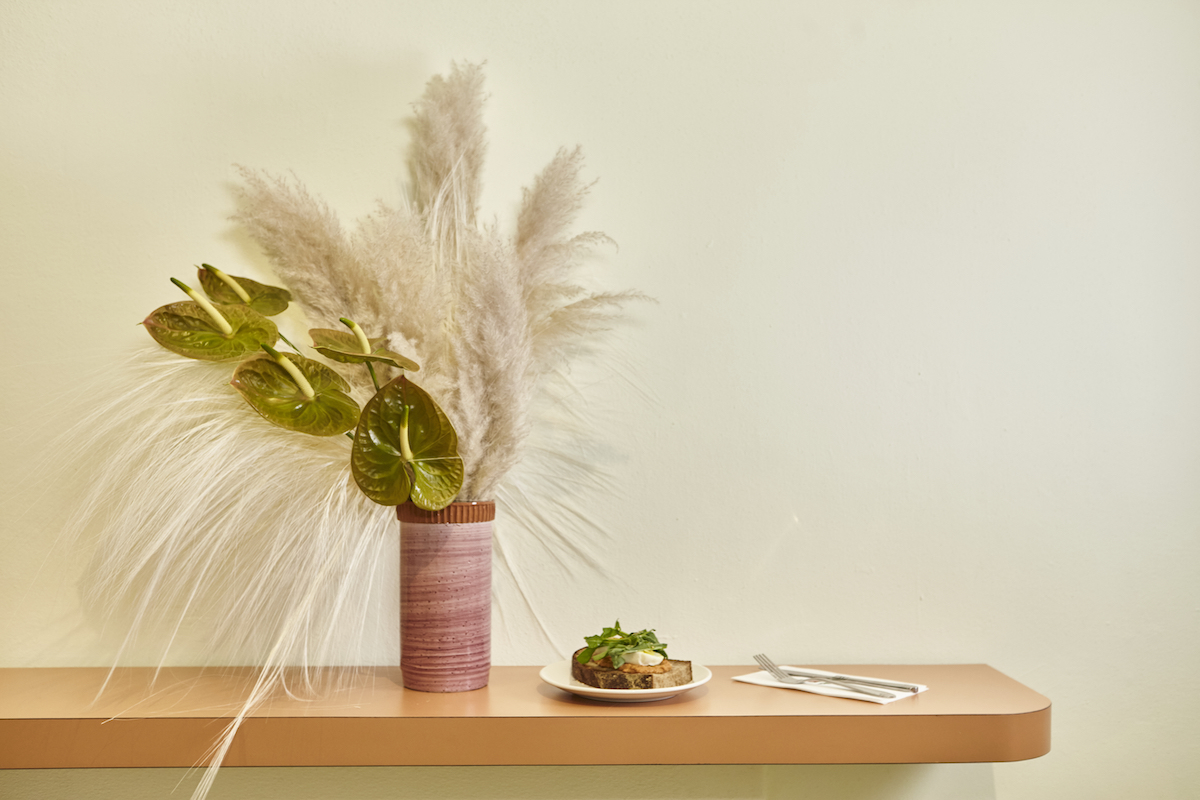Land to Sea’s Personal History
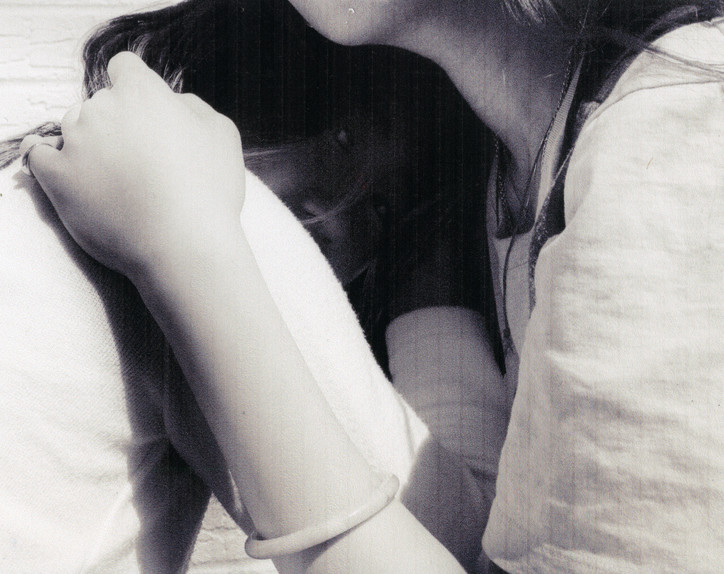
The first generation children of families who immigrated to the U.S. from China and Hong Kong, respectively, Zhou And Shum grew up in the hustle and bustle of the food-service industry, gaining an understanding of and reverence for the cultural value of the kitchen table.
The name, derived from their parents’ journeys to the U.S., calls upon a similar experience for Zhou and Shum of leaving the security of solid ground behind, in pursuit of something more fluid, dynamic, and, ultimately, nourishing.
After forays in the fashion industry, the two came together with a dream to build something which would directly celebrate and serve its community, cultivating a space with an ethos that extends beyond its walls. Beyond their cafe, which boasts an impressive menu of coffee and tea selections brewed with Sey coffee and traditional Chinese pastries, the space hosts community events, art exhibitions, and food pop-ups as well.
The space itself is imbued with a sense of familiarity. The storefront is warm and woody, drenched in the natural light of an uncharacteristically sunny February day before sundown. The walls are adorned with personal ephemera, and carefully collected trinkets. The tables are papered with newspapers from Chinatown. At the far end of the room is a portal to what was once the backroom of the previous space, transformed by Zhou and Shum into a seating and event space reminiscent of a Hong Kong night market. Lit with a soft neon glow, the space feels like a memory passed through generations, touched by each mind who calls it into existence, taking on a new form each time.
During my visit to the Williamsburg cafe, we sit outside and take in the last hours of sun, squeezing four folding chairs around a wooden table. I warm my hands on a Hojicha Maple Latte and try (somewhat successfully) to stop myself from commenting on how good it is with every sip. A few regulars slip by, extending quick waves and warm smiles. Zhou and Shum greet them by name, building their Land to Sea family.
Pull up a chair to our conversation in the interview below and stop by Land to Sea at 402 Graham Avenue.
So how did the two of you meet and come up with the concept for this?
Emily Shum– We met in college. We went to FIT, [Eva] had just moved from Georgia. I had grown up in Brooklyn and lived in New York my whole life. We met in a product development course, but what was the task? To make a private label line?
Eva Zhou– Yeah. For an existing fashion brand. Yeah. So as this ages us, we were like, “let's do Urban Outfitters.” And our private label, I don't even remember, it was like soft grunge…grace?
ES– No, graceful grunge! That was our private label line.
EZ– So we had to come up with three pieces and kind of like develop it from start to finish. Even design it. But, to pick partners, the professor was just kind of like “half of the room stand on this side of the wall, and this side on that side. And now pick your partners. Choose someone you don't know.” We honestly didn't know anyone in that class. And we kind of just made eye contact, like, “Oh, my God, POC-POC.” All right, we're buddies now. And the rest is history.
ES– I feel like we had always been friends. Despite how different we were, I feel like we always kind of came together with similar ideas and what we wanted to do in our lives and our values. We had always spoken about opening up a business, doing something outside of fashion. And both of our families kind of had that kind of career trajectory. My family is in food service. Your family was in food service. So it seemed kind of natural. One day Eva just kind of FaceTimed me. We were like peak pandemic lockdown for? I don't know, it must have been like over a year and a half at that point. I had switched jobs, like three times and was going through a crisis. And she just FaceTimes me. She was like, “should we do it?” And we did it. Yeah, we started immediately.
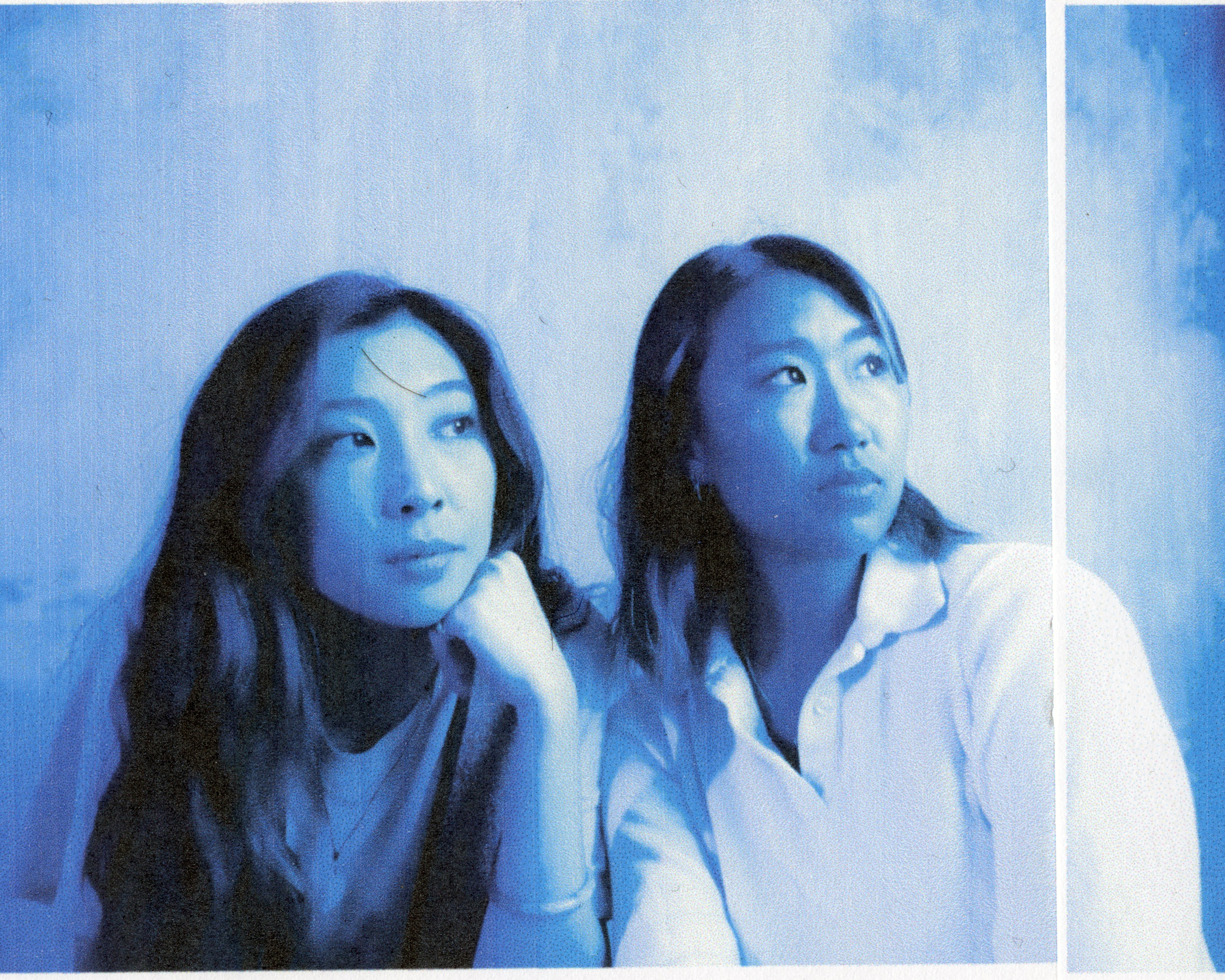
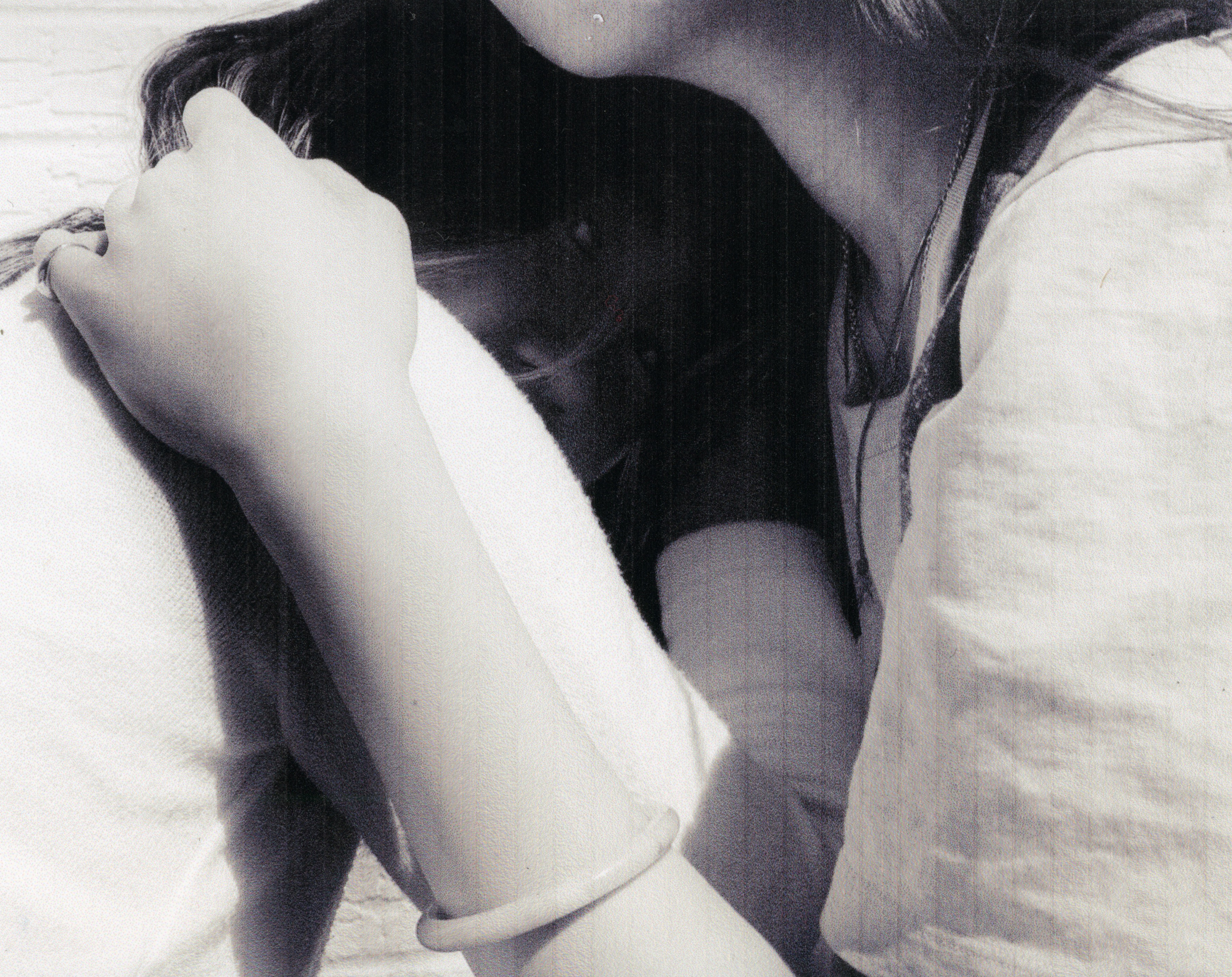
What was said on that FaceTime?
EZ– I literally FaceTimed her and she answered it and like, no context given: “Do you wanna start a business together?” No questions asked she said, “Yes. Now what?”
ES– Because I think in our brains, we always kind of knew what it would look like, we always kind of knew it would be like, food-beverage centered, like a safe space for creators. Something we talked about a lot was how space was kind of a commodity in New York. It was hard to come by a place where people could just gather and share their work and hang out. We went through many different iterations of what the name would be, what the concept would be. But what we always knew was that it would be a place for others, not just ourselves. We knew the feelings we wanted to convey, which were nostalgia, romance, feeling like home.
So tell me about the name.
ES- We were sitting outside of Win Son bakery. Okay, and we're talking and I had a drawing of a weird layout for the shop.
EZ– It was purely like spitballing and we're like, Okay, what kind of conveys like the journey our parents made with all those feelings of them, like coming from one country to another, laying down their roots, and making sure that our culture was still very much prevalent in our daily lives here. So we were just tossing out words like “so they went across like an ocean, boats, water, bridges, mountain, no.” Then we were like “land sea, sea to land, land to sea and it was just like okay, that's it.”
ES– Yeah, it was. It was also quite vague, which is kind of ambiguous, right? Like even now people kind of look in and they’re like “What is this? Not totally sure.” But I think that's the point. We're very fluid in how we use the space. We're very fluid and like, you know, even our menu changes often.
EZ– I will say, though, people that relate to our histories, yeah, if their parents immigrated. And people that don't relate, they're like, is it a sushi restaurant?
ES– Yeah. It was also meant to be kind of dramatic and romantic.
How do romance and timelessness come through in the space?
ES– My family's from Hong Kong. Well, my mom is from Hong Kong. I grew up speaking Cantonese. I grew up eating Cantonese food and cuisine. Eva's family. They're from China. So we kind of touched upon a lot of their experiences. I asked my mom a lot about her childhood, about her growing up when building this space, and we worked with interior designer Jeremy Son to bring it all together. I think that when walking through this space, we've tried to pay a lot of attention to detail. The green grids, it's a Hong Kong tram green, the wood tones are all kind of reminiscent of this film that we love. It’s this Hong Kong film named In the Mood for Love by Wong Kar-Wai.
EZ– I think that we drew a lot of inspiration from that film in general. Something that we don't talk about often is kind of like our family histories–mine from China, her’s from Hong Kong. And that tension in between those, how Hong Kong wants to be independent. China wants to claim them. But I think the beauty is that our family histories and where they come from, that historical conflict doesn't matter here. Us being in America and bringing our two different cultures here. It's kind of a beautiful thing. Like we've started a fresh new kind of relationship.
What was your home like growing up? How did it smell? How did it sound? How is it echoed in this space?
EZ– Why did I automatically think of my mom yelling?
ES– Yeah, right? No, I felt like Mahjong tiles shuffling, smoke in the air-type vibe. Yeah, yeah. I grew up with my dad chain-smoking. I remember, whenever we would have family parties, I would fall asleep to the sounds of like Mahjong tiles because all the adults would be up gambling. I grew up in South Brooklyn, in New York. So we would go to these big parlor-style Chinese restaurants. And people would be yelling and screaming, but there would be tables of like, 15 with shared family-style dishes. And more than anything, I think those moments were defining, like food is so communal, you know. Food is what I define my childhood with.
EZ– I used to eat pork floss buns as a kid–we have them in the shop–but it’s dried pork on top of like a sweet cream in between one bread but has like a slit on the side and it’s sweet and savory. It's really, really good.
ES– Yeah, my mom used to with the bolo baos that we have. She used to, like poke holes into them and stick a chunk of butter in it and , give that to us as a snack. As a kid, my grandma would do that for me up until it's like 15 years old. So it was really beautiful to see my mom do it, and my grandma do it. It's kind of like something passed down, and I get to do it for a wider audience now, which is really cool. We opened at a very strange time, right, we opened right at the end of what felt like a very long prison sentence for everyone. And we kind of had built land to see after being isolated for several years at that point. So everything for us is about togetherness. Our original plan was to do, and what we're back to starting to do now is one art one food pop up a month. Currently, we have an art exhibition. So kind of being able to be a platform for the small creators that maybe not don't have access to have their own.
EZ– We also are trying to do more workshops. But we are expanding like in terms of what kind of mediums we want to host so we do want to do more film screenings, maybe poetry nights. We're working on that one for the summer, after outdoor barbecues. Yeah, we’re maybe planing on putting on a bunch of different things. Just to make it, whatever it needs to be. We want to keep it fluid.
How did you select the space, and make it your own?
ES– We've done the work to make it feel like home. When we first signed the lease and got the keys, we had my mom in here to cleanse the space like spiritually to make it ours. Since then, I don't know personally, I just feel like ever since then I felt at home here. Yeah. And you know, even when we were building the shop and it was dirty and disgusting, I still felt at home in here.
EZ– Yeah, we got lucky though. Because we inherited a lot of components like the drop down ceilings, the wood flooring, the brick wall, but it just feels completely different with how we did it. Yeah, this door, this back area here was like their back room. So it was separated by a barn door but we made it public facing. It's interesting how just a few little things like light fixtures and just who we are, can completely change the space. And everyday I'm surprised by the kindness of our neighbors and the people that are in here and like we're so happy you're here and like just our regulars we know their names. We know their orders, we know their dog's names. It genuinely feels very close and warm here.
How does that big family feeling you had at home translate here?
ES– This whole space is just about kind of coming together. I mean, even when, you know, a lot of these artists, we didn't know them beforehand. They've become part of the fantasy collective. So it just feels like a constantly growing family. I grew up with in a house with like, 10 different people. So, you know, this connection, it’s like a tree that keeps on growing.
EZ– In Chinese culture, even if you're not related to someone, you call someone by “Auntie, Uncle, Big Brother, Big Sister” kind of thing. We don't call our customers like “Hey Auntie” but we always make sure that we're friendly and that they feel warm and welcome here, whoever they are. Also like seeing some people come in and being like, it's really nice to see some of the pastries I grew up with being displayed here gives me a sense of hope. Removing myself, I feel like other people come here and feel that sense of family. They bring their friends here.
Like they have their own sense of family here outside of us, which I think is really beautiful. With space being such a commodity in New York, how have you made the shop feel big in intimate ways? I think it's mostly like a mindset. If you accept it as like a fluid space, it can be that in however way we have limits. We have so many limitations here too. But we work with what we have.
ES– The openness, in a more technical sense, really comes through in the “portal” we have to the second room. A lot of times people will come in and be like, I thought that was a painting bag. They're like, I didn't know this was a space you can explore and go into. I created an alternate universe type of coffee shop, because people don't immediately see the space and think of it as a coffee shop energy. But like we are designer and good friend, had a lot of really good ideas to kind of make this immersive experience that we're working to build this like Portal to this night market, Temple St., Wong Kar Wai film type space, is something I think that we intentionally did to open up the space.
EZ– I think this main space definitely gives off a warm kind of like at home feeling. Kind of like the romantic vibe of like "In the Mood for Love." This corner specifically has the most reference to that. This red curtain is actually a direct inspiration from one scene where it's like they're walking down this hallway and it's like red curtains. And then just like the intimate pendant coming down, and then the back is more like the night market. There's this really famous night market in Hong Kong called Temple Street. And it's just like booths and booths and different clothing, food, all these different things. And people are all seated on like little red stools. And it's also reminiscent of all the China towns we grew up in.
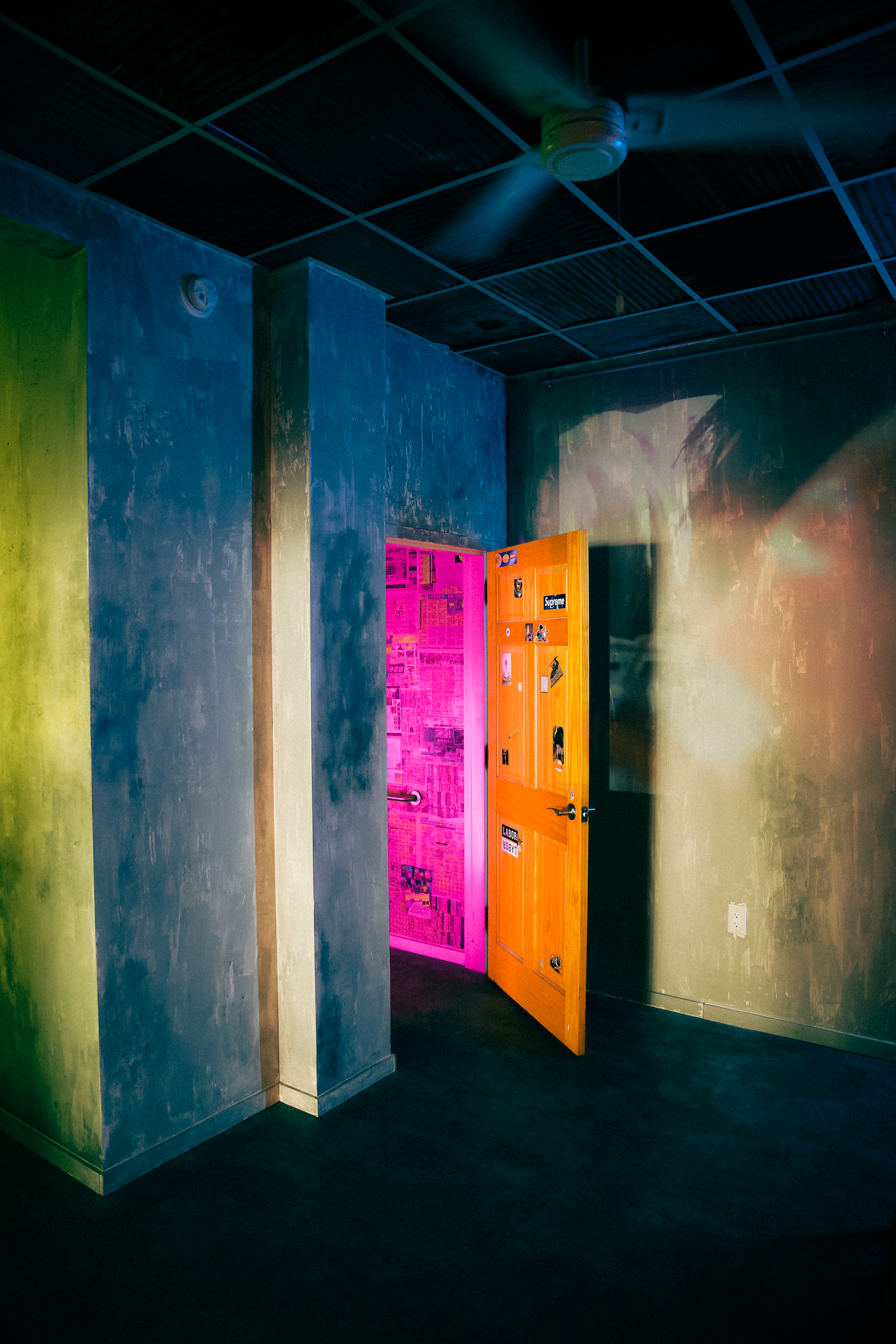


When was the last time you went home, and how did it feel?
ES– I went to Hong Kong with my family in 2017 or 18. A lot has happened in Hong Kong since I saw a family out in Hong Kong, I still talk to them regularly. I haven't been able to go back but I feel like after this experience going back to Hong Kong is going to be a different kind of experience for me. You know, guaranteed I'm going to be working for most of it because I'll just be taking photos and mood boarding. But once everything cools down there I really want to see my great aunt. She is about 80. She's turning 81 this year. God bless her soul, so I really want to see her. I just really missed the food out there. You really miss the energy from Hong Kong. Everything is so compact. You know, I used to think New York City was compact. Hong Kong is on a different level. So I just missed that kind of energy.
EZ– My grandpa beats your grandma, he's 91. I remember, in order to spend time with him, I would have to go by his house and he would wake up at like six in the morning and go to the actual morning markets too. And you can get bags of food to bring home and eat for breakfast. So we would do that. I missed that food.
ES– When I go back, it's really strange because I think my Cantonese is quite good. My grandma raised me, because my mom was working a lot growing up. So I lived with my grandma, and my aunt, and my uncle David, like three cousins and my grandpa and like a bunch of people. So whenever I go back, it's weird because it feels like home. But it's very apparent that I'm not from there, you know? So it's like, I'm home. And I'm also observing these people and their cultures. You know? So, for me, it's like, still about learning. You know, I have a lot to learn. Exploring my traditions, and my culture and my history from the other side of the planet has been a bit strange.
How does it feel coming back to New York, and to Land to Sea?
ES– It feels like home?
EZ–Yeah, like home, honestly.
ES– kind of built it with our parents advising us and they've been in the space and we've spent so many nights and days and hours here. And I brought gifts from my parents, like the plants. We have family pictures hanging on the shelf. It very much feels like this whole space was like a love letter, you know, to our parents. So even if it isn't necessarily our upbringing, like being able to mimic their stories growing up feels very within my own self, my own spirit. Like, the green feels very familiar to me, for example, these wood tones feel very familiar to me. These newspapers feel very–
EZ– The round tables are very important in Chinese culture to kind of express shared meals. So we knew we wanted that too. And I think that in general everything was very intentional in how we designed it to feel comfortable.
Where do the two of you come through in the space as well?
EZ– I think picking out the pieces and putting it all together. My parents' restaurant didn’t look like this. But we're both representing the same thing.
ES– There are little touches here and there, like the lucky cat was given to me by my cousin, that calendar my aunt gave me. Everything was passed down some way. Well not everything, but a lot of things were passed down somehow. We try to shop in Chinatown. The light pendants are from Chinatown. Our little antique mugs are from China Town. So I think that everything is something that has touched the both of us somehow.
To me, the name Land to Sea reminded me of starting somewhere solid, and moving towards a place that is more fluid. That’s not really a question…
ES– No, I understand the question. I literally understand this. Yes, exactly. That’s exactly the way to explain it. because the thing is, we could not draw, draw the concept from anywhere, right? Like, there was no exact place or business we could reference. So when figuring out a business plan, the model, like how things are gonna work. Like we kind of did it all like from scratch, you know, like, we didn't have a reference point. And luckily enough, we've had creators that have really embraced us and like, embrace the fact that we're all learning together.
Are there any upcoming events you’re looking forward to?
EZ– Throughout April we’ll be featuring an exhibition by Elaine Shen, “the end of the beginning.” Which we’re really excited about, because it’ll be Elaine’s solo debut. She works with knitting, stitching, sewing, netting and sculpture and the exhibition plays on the paradoxes and tensions between how things can be presented and perceived in totally opposite ways.
ES– Also, during the 23rd and 24th we’ll be featuring a pastry offering by Kuih Cafe which is this small hole-in-the-wall spot in Chinatown that was started by a mother and daughter. They'll bring in different Malaysian bites and pastries.
